




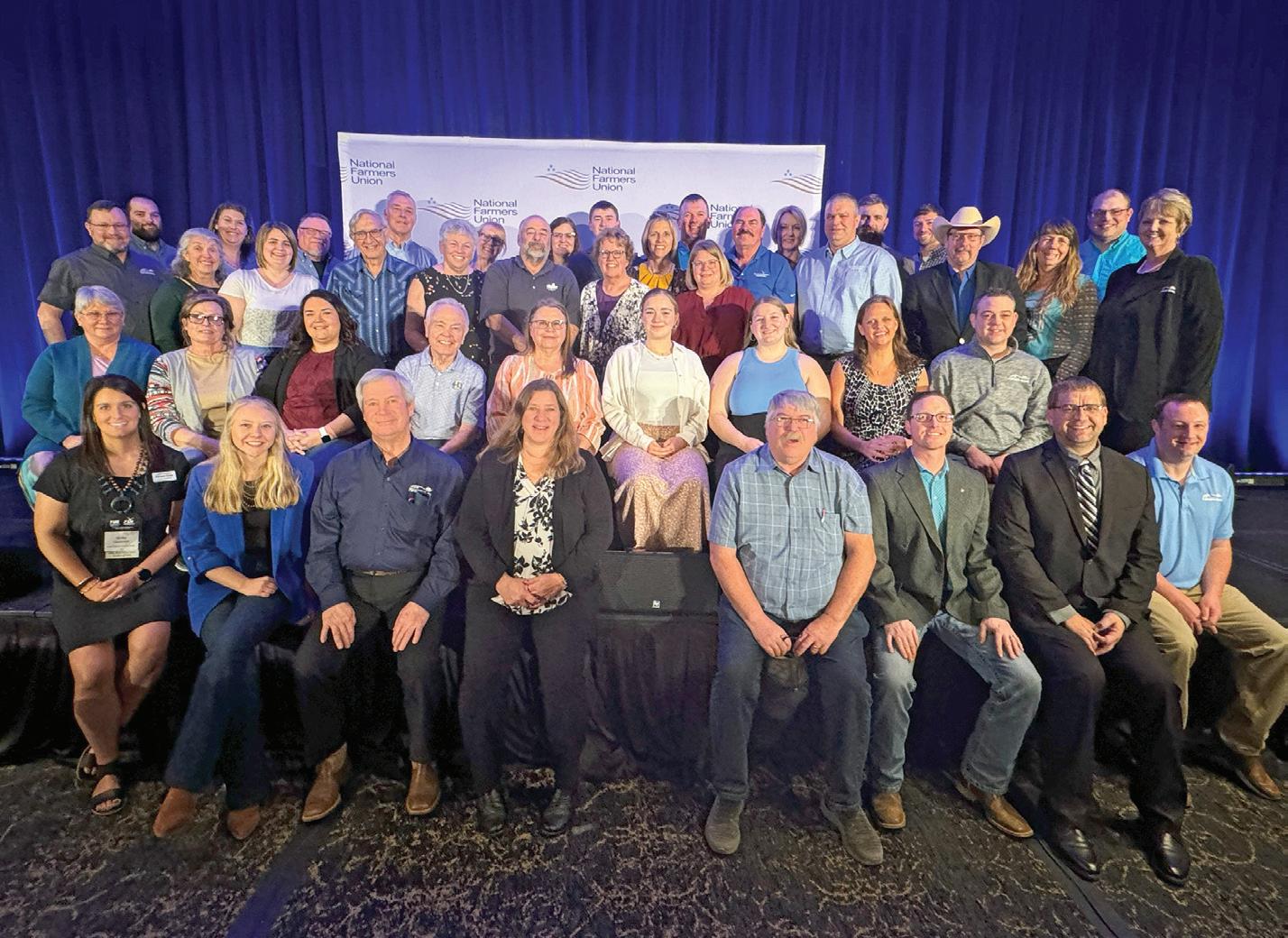
When NFU President Rob Larew addressed the more than 400 members during the 2024 National Farmers Union State of the Union, he credited YOU, the members of Farmers Union, with the fact that the organization is strong, resilient and effective in its mission to support family farmers and ranchers.
“Informed, engaged and active members are the lifeblood of meaningful change,” Larew said.
Read more about the National Convention on Page 4
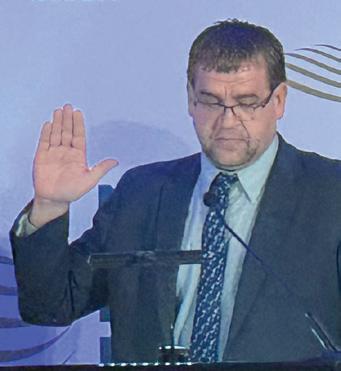

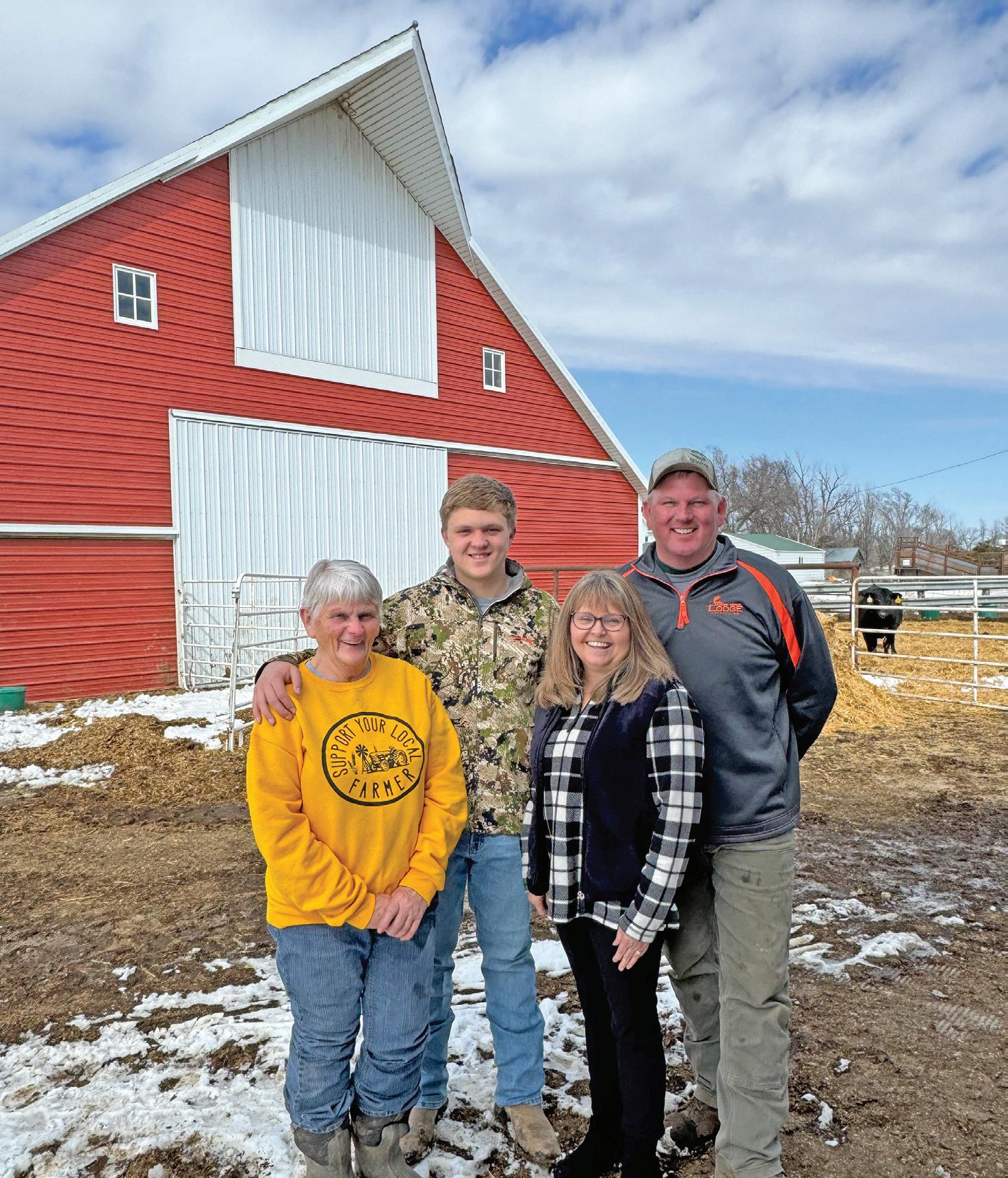
Calving is underway on the Holan family farm near Pukwana. And like most South Dakota family farms, calving marks the first of many seasons. Once the calves are on the ground, it will be planting season, and then harvest. But unlike most, the Holan Farm has an extra season - Hunting Season.
“Mike goes from doing chores in the morning, to the lodge to take the hunters out, then he jumps in the combine to harvest. He gets up in the morning and starts it all over again,” explained Mike’s wife, Linda Marie.
“Hunting season is very, very busy,” Mike confirmed.

Thankfully, Mike is not alone. The entire family chips in. Linda Marie and Mike’s mom, Linda Kay, clean the lodge and prepare all the hunter’s meals. Mike’s sister, Paula, and her daughters help with breakfast, Mike’s sisters, Anita and Kim, and nieces, Lizzie and Tatlin, clean the birds and Mike’s nephew, Javen, and youngest son, Graden, bring their dogs out to help on hunts.
“It’s a big family affair,” explained Linda Marie.
The Country School Lodge opened its doors in the late 1990s, shortly Holan


Continued from Page 1
after Mike returned home from Mitchell Tech to farm full time with his dad, Dennis, and Grandpa Lawrence.
A few years prior, the Kimball School District closed the Richland Country School. So, the Holan family purchased the land and building because they had a special connection. Not only did Mike and his sisters, Paula, Kimberly and Anita, all attend the country school, but Mike’s great-grandpa Mike donated the land for the school decades
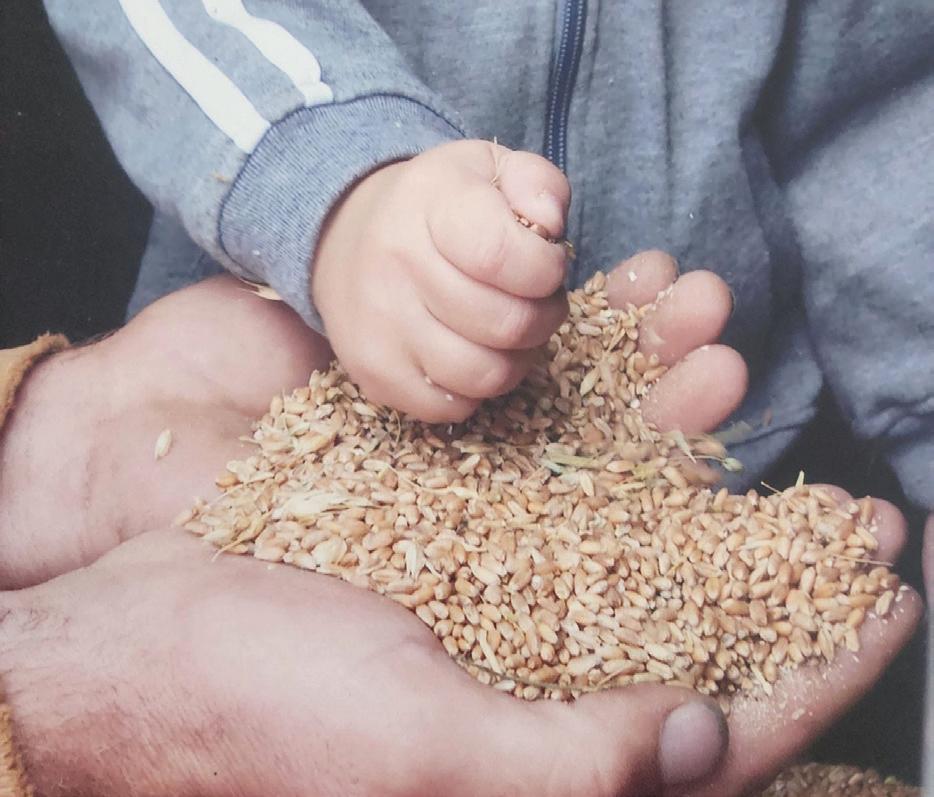
earlier.
“I needed a place to live, so I fixed up the upstairs into an apartment,” Mike said. “There was so much room left unused, and hunting lodges were going up everywhere around us, so we decided we would not be out too much and should give it a try.”
Although hunting season is a lot to manage, the family enjoys the relationships they build with hunters.
“It’s like a family reunion every weekend. These guys watched our boys grow up,” Linda Marie explained.
She added that seeing their farm through the hunters’ eyes is also rewarding. “They say how gorgeous our land is and they take pictures of sunsets. And there are times when I’m bringing the lunches out to them, and I stop and look and think, ‘it is beautiful out here.’”
Over the years, the farm’s hunting business has expanded by word of mouth. “The supplemental income is helpful. Anything you can do to bring in more dollars for the farm,” Mike said.
Mike is the fifth generation Holan to raise crops and cattle on the land. Working to ensure the farm is viable should their

son, Graden, want to take over one day is important to Mike and Linda Marie.
Sitting around Linda Kay’s kitchen table, the family talks about the farm’s history as well as its future. Linda Kay’s home was built in 1902 by Mike’s namesake, great-grandpa Mike. Just across the farmyard, the barn he built in 1905 still stands.
Mike’s grandparents, Lawrence and Evelyn, raised his dad, Dennis, in the home. It’s also the home where Linda Kay and Dennis raised their four children.
“Until mom and dad moved in, it did not

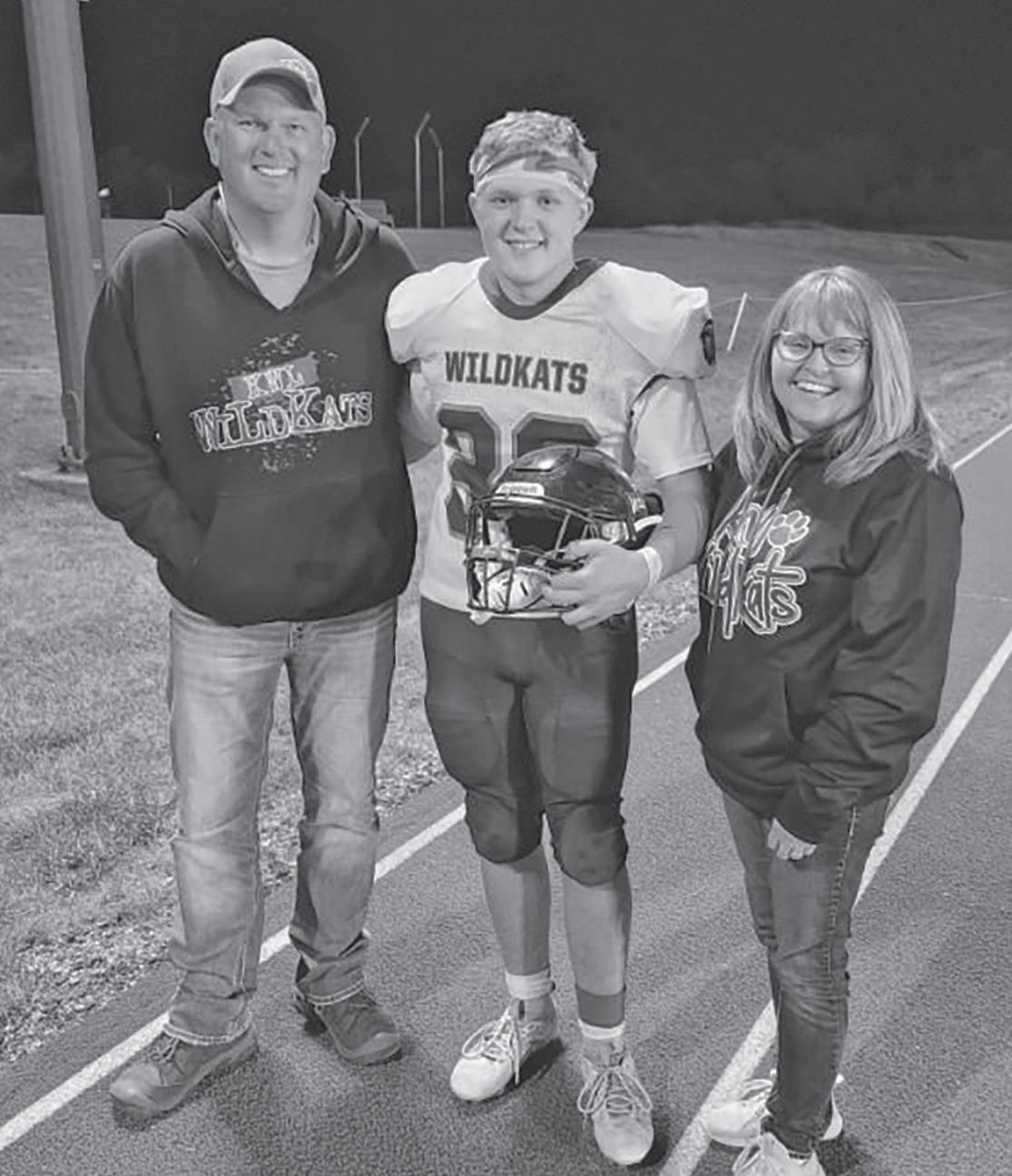
have any running water. I remember as a kid, if you had to pee, you peed in a bucket or you used the outhouse,” Mike recalled.
Plumbing was installed in 1987 when Linda Kay and Dennis moved their family into the home.
Grandpa Lawrence was frugal. “Grandpa was not big on upgrading machinery, he ran them until there was literally nothing left of them – you cannot do that these days,” Mike said.
In addition to raising crops and cattle, Lawrence and Evelyn kept the farm afloat with their custom combining business. “When I married Dennis, they combined from Oklahoma to Canada with those old Gleaner combines,” Linda Kay said.
“In those days the combines did not have cabs. I can’t imagine driving one of those,” Mike said.
Linda Kay actually met Dennis when he was combining the neighbors’ fields. She grew up on a farm near Bijou Hills, a tiny town between Pukwana and Academy. The couple combined with Dennis’ parents the first nine years of marriage. When the family quit custom combining, they expanded the farming operation by building a hog barn.
The farm and its work have always been a team effort. In addition to working as a teacher’s aide, Linda Kay and the kids worked right alongside Dennis. “Raising the kids on the farm taught them work ethic,” Linda Kay said. “We raised hogs and all the kids would come out and help us grind feed, clean grain bins or hog pens.”
much the same about the opportunity the farm provided to her three sons: Ethan, Alex and Graden.
“It’s nice that they could be out in nature, help with chores and we didn’t have to worry about being in town and wondering what they were doing,” said Linda Marie, who juggles hunting lodge and farm responsibilities along with a full-time job at the local school.
Today the two older sons have careers off the farm, but they still return home to help with chores or hunt. Because the Holan farm is just a few miles from Mike’s sister, Paula Gussing’s farm, Graden’s cousins chip in to work with him when the family needs extra help.
“When we kick pairs out with four
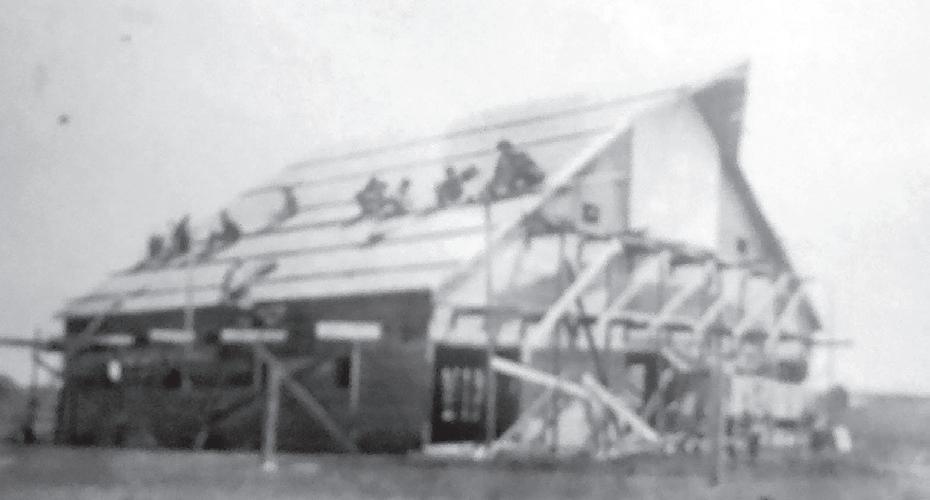
wheelers our nieces and their boyfriends come out to help Graden. They call it their ‘favorite holiday,’” Mike said. “We adults sit on the side and watch them work.”
Graden is a high school junior and said he enjoys helping out with cattle chores and the hunting lodge. Active in FFA, Graden has been building up his own herd that he started with a $5,000 Farm Service Agency youth loan.
He and Linda Kay also manage a trapline together.
“Grandma taught me. She always had a few traps set up and I would go check them with her,” Graden said. “It’s nice that I get to see my grandma every day.”
Linda Kay said once Game, Fish & Parks started offering $10 a tail, she and Graden put out more traps.
“I like farm work – whether it is running the drill at planting or feeding cattle,” said Graden who plans to attend Mitchell Technical College and study agronomy and general agriculture.

Linda Marie feels
Although the family farm is important to him, right now, Graden’s focus is on school and athletics – he plays football, basketball as well as spring and summer baseball.
“They call him, ‘farm strong,’” Mike said. At 17, Graden does not yet know what he wants to do full time after college. The idea that he may want to return to the family farm is one that makes Mike happy.
“It’s super awesome. I love working with
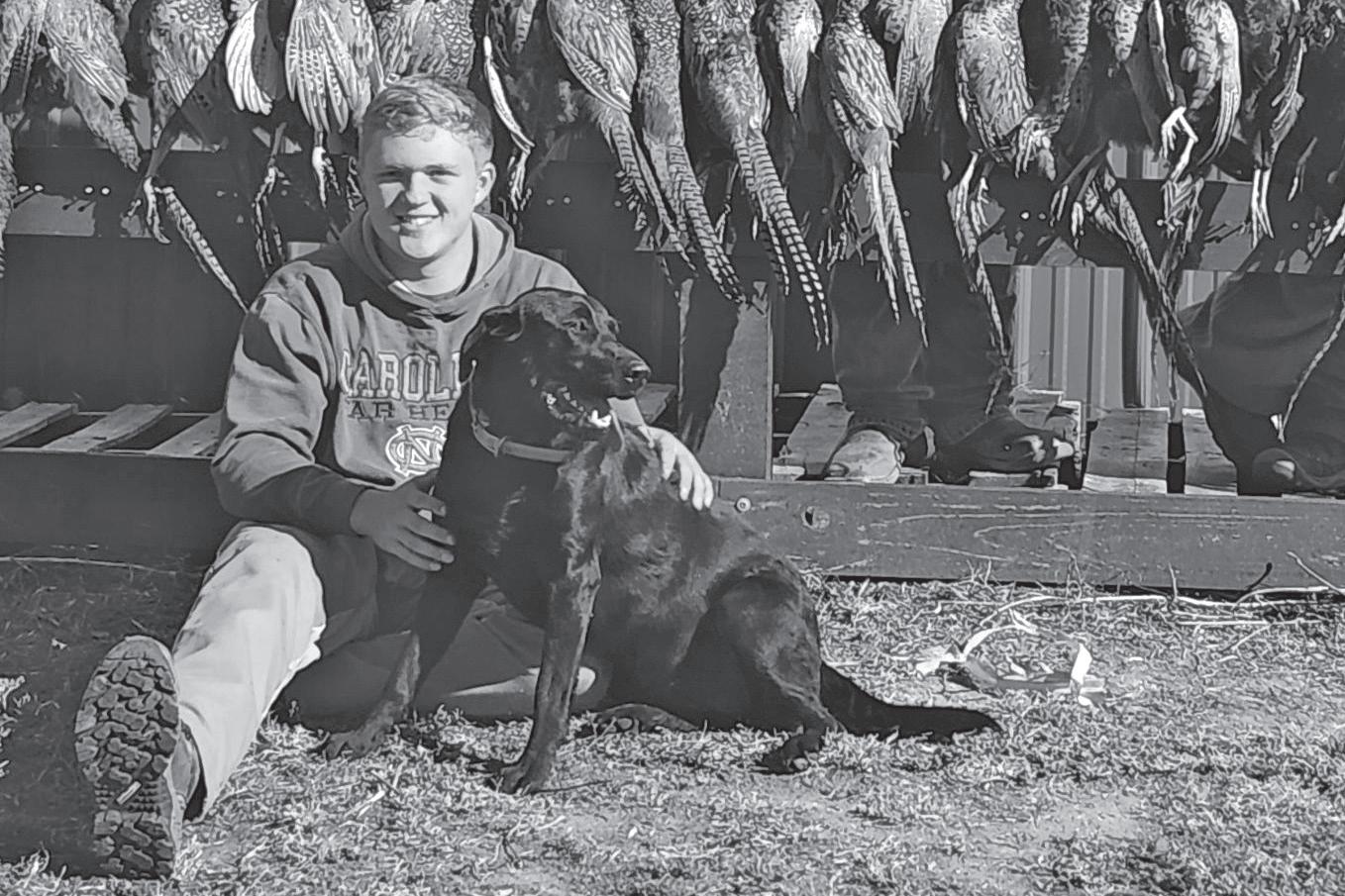
him,” Mike said. ‘Just the other day we were pushing posts and when we got done, Graden said, ‘lets staple them up quick.’ Once we were done, he asked, ‘do you mind if I go fishing?’ I said, ‘of course, go fish.’ Having our farm so close to the river why not enjoy it?”
Their farm is just 23 miles from the Missouri River.
Reflecting on what he gained from growing up on the farm, working beside his Dad and Grandpa, Mike said, “There was nothing else I wanted to do but farm. I knew dad and grandpa wanted me back. I enjoy being my own boss. As long as you work hard and get things done and the banker is happy, it all works out.”
“In those days the combines did not have cabs. I can’t imagine driving one of those.”
–Mike Holan
Mike ended up taking on much more farm responsibility, much sooner than he anticipated, when pancreatic cancer took his dad, Dennis, in 2005. Dennis was only 59. He passed away just 10 days after Mike and Linda Marie’s wedding.
With the future of the farm and pheasant habitat in mind, the family continues a long tradition of land stewardship. They are focused on conservation practices like rotational grazing (they rotate their herd every 10 days), no-till farming and planting a diverse crop rotation of oats, winter wheat, corn, soybeans and milo.
Prior to growing season 2023, the family raised milo mostly for the pheasant foodplots. Mike decided to raise more acres of milo because it is drought tolerant, and the local elevator has access to horse feed and bird seed markets.
“I talked with the seed rep, and milo seed is cheaper, the chemical needs are about the same, crop insurance is cheaper and the market is solid,” Mike explained. “And the pheasants like it, so it’s a win-win.”
To view more photos and watch a video to learn more about conservation efforts on the Holan Farm, visit www.sdfu.org
n By Lura Roti
Creating meaningful and positive change for family farmers and ranchers was the focus of NFU Convention speakers, breakout sessions and policy, explained Doug Sombke, President of South Dakota Farmers Union.
“We are the organization standing up for and providing a voice to family farmers and ranchers and their rural communities,” Sombke said. “While other ag organizations are looking out for the interests of corporate agriculture, the interests and well-being of family farmers and ranchers is the focus of Farmers Union.”
Reflecting on the efforts and input of South Dakota Farmers Union (SDFU) delegates during NFU policy, Sombke said the state’s grassroots policy was well represented.
“South Dakota’s delegates are so well-rounded. Not only in our representation of agriculture across the state, but also diversity of skillsets and experiences off the farm and ranch,” Sombke said.
Sombke was referencing the fact that among the 14 elected delegates and state board members engaged in NFU policy there were family farmers and ranchers with backgrounds in banking, accounting and insurance; they have experience serving in the legislature, on township boards, county commissions and school boards. Along with Farmers Union, delegates are engaged in a diversity of cooperative, commodity, conservation and community organizations.
“We had delegates who could stand up and talk with background knowledge on so many different topics – we are fortunate,” Sombke

said. “And along with a diversity of experience, there was also diversity in ages represented.”
Aberdeen farmer Kirk Schaunaman agreed. “I said this after attending the 2023 D.C. Fly-In and I want to reiterate it after this national convention, the future of SDFU is in good hands. We have a strong group of young producers who are engaged.”
2024 NFU Convention delegates were Lance Perrion, Ipswich; Larry Birgen, Beresford; Gerri Eide, Gettysburg; Scott Kolousek, Wessington Springs; Rob Lee, De Smet; Tonner Bowman,

Mitchell; Hank Wonnenberg, Dallas; Oren Lesmeister, Parade; John Kippley, Aberdeen; Jim Wahle, Salem; Amber Kolousek, Wessington Springs; Rachel Kippley, Aberdeen; Mary Ellen Cammack, Sturgis; Tammy Basel, Union Center; David Reis, Reliance; Brenda Reis, Reliance; and Melissa Wonnenberg, Dallas.

Elected by members during the 2023 State Convention held in December, delegate Amber Kolousek said she appreciated the fact that she and the other delegates had plenty of time between state and national conventions to research and prepare.
“Policy is the most important thing that we do in Farmers Union,” said Amber, who raises cattle with her husband, Scott, near Wessington Springs. “It is the reason we attend convention. And we do the research necessary to support policy that supports family farmers and ranchers. Debate on the floor can get interesting. I appreciate hearing all the different perspectives that come from across the nation.”
Attorney Brian Jorde with Dominia Law Group shared basic information all landowners should know about when it comes to property rights. With extensive experience in helping protect landowners in cases where eminent domain is used for private gain, Jorde is someone many South Dakota Farmers Union members heard from during the 2023 State Convention panel discussion on property rights.
The three main points of Jorde’s talk were:
1. Speak Out: “Remember, if you’re not looking after your property rights, no one else will.”
2. Local Control: “You need to get busy in your local counties and develop resolutions/ordinances/setbacks for infrastructure projects.”
And because in cases like Summit Carbon Solutions, there is a $3 billion annual tax credit incentive for the private corporation, Jorde said to expect pressure. But don’t give in.
3. Hold Out: “You have the power to say, “no thank you,” to an extent. Hold out. Don’t let them steamroll through. … be a part of lawsuits, participate in legislature proceedings.” He said the property owners who have the best outcomes are the ones who wait.
2024 NFU Convention was 27-year-old farmer Tonner Bowman’s first experience serving as a delegate. He said he felt honored that SDFU members elected him to represent them.
“It was an amazing opportunity to be a voice and spokesperson for family farmers because through NFU policy we have the power to influence national policy like the Farm Bill,” explained Bowman, who is a second-generation farmer and agronomist who farms near Mitchell.
Passing the Farm Bill was a top priority of many attendees. “This is one of the most critical bills,” said Oren Lesmeister, District 6 Board Member and Minority Leader of the South Dakota House of Representatives. “Farmers and ranchers need an updated Farm Bill because our safety nets are connected to this.”
As NFU delegates, South Dakota
Amber Kolousek
Farmers Union members have the opportunity to provide guidance to policymakers in D.C. Groton farmer, Chad Johnson added, “National Farmers Union takes the policy we vote on here and uses it to give direction in D.C. This is the biggest thing family farmers and ranchers need – laws in place to support us,” said Johnson, who serves as District 7 Board Member.
Strengthening the enforcement of the Packers and Stockyards Act is a motivator for Johnson and many other SDFU members. Dur ing the ’22 and ‘23 Fly-Ins, Johnson and other members had the opportunity to talk with Department of Justice representatives about the anti-trust challenges facing livestock producers.

The conversation continued during the ’23 South Dakota State Convention when members sat down for a Q&A with Deputy Attorney General Michael Kades. Following convention, Kades made time to visit one-on-one with members and he traveled to area feedlots with SDFU Executive Director Karla Hofhenke – all to better understand the first-hand challenges of cattle producers.

Supporting transparency and truth in labeling in the livestock industry was also a focus of the speech given by the U.S. Secretary of Agriculture, Tom Vilsack (read more about this on page 6).
“It is good to see momentum on these issues,” said Scott Kolousek, District 2 Board

Farmers Union teen leaders Madi Raymond, Ethan, and Cadence Konechne, Kimball, joined SDFU members in Scottsdale for the National Farmers Union Convention.
“Attending National Convention is an opportunity for them to learn about Farmers Union outside camp,” explained Samantha Olson, SDFU Education Program Specialist. “We want rural youth who participate in our camp programming to understand that there is always room at Farmers Union’s table for them.”
High school junior Madi Raymond said after observing State Convention policy discussions, she appreciated the opportunity to sit in on national policy. “It was so interesting to watch. I thought our delegates were strong.”
Cadence Konechne said, ”Growing up on a South Dakota ranch, attending NFU Convention made my feelings about Farmers Union more concrete. It showed how impactful this organization is for not only farmers and ranchers in South Dakota – but the nation. As a member, I now feel like I am part of something important.”
Member. “It is frustrating how slow things move in government, but I feel like Vilsack is a true champion of agriculture and the smaller family farmers and ranchers. He is not ‘get big or get out,’ like the previous Secretary.”
In addition to policy and speakers, Beresford farmer Larry Birgen said he values national convention for the many conversations he gets to have with farmers and ranchers from across the nation.
During NFU Convention, Jeff Kippley was re-elected to serve as NFU Vice President (read about this on page 14) ; SDFU President Doug Sombke was re-elected to serve as NFU Treasurer (read about this on page 13); David Reis, Reliance rancher and District 4 Board Member, received the Bruce Miller Membership Award (read about this on page 12); Bill Zortman, Milt Hakel Excellence in Agricultural Journalism Award (read about this on page 7); and a district and several counties received national recognition for membership growth: Lyman County, Brenda Reis; Jerauld County, Scott Kolousek; Hand County, Rocky Forman; NFU President, Rob Larew; District 1, Larry Birgen; Dewey/Ziebach Counties, Oren Lesmeister; Brule County, Cadence Konechne; and Lincoln County, Kirk Schaunaman (on behalf of Lincoln County.)
“It is interesting how even though we are in the same industry, things can be very different from state to state,” said Birgen, a District 1 Board Member. “A farmer from Utah asked me if South Dakota had any farmer-owned cooperatives anymore. I told him I’ve sat on the board of one for 20 years. He said, ‘don’t take your co-ops for granted. We don’t have any.’”
Reflecting on overall NFU Convention policy discussions and speakers, Clark farmer and District 3 Board Member Gail Temple summed it up this way. “We have signs of hope that things are moving in the right direction. We are getting somewhere with Right to Repair. We are getting somewhere with transparency among the meatpackers. We are still waiting for a Farm Bill – but there are signs we are being listened to.” n By Lura Roti
After decades of advocacy, South Dakota Farmers Union members were in the room to hear USDA Secretary of Ag Tom Vilsack announce the finalization of a rule which will only allow meat born, raised and harvested in the USA to carry the Product of the USA label.
“We are basically saying, ‘you can’t get by slapping an American flag on the package, unless they were born raised and slaughtered here,’” said Vilsack from the podium March 11 at the 2024 National Farmers Union Convention. “This final rule will ensure that when consumers see ‘Product of the USA’ they can trust the authenticity of that label and know that every step involved, from birth to processing was done here in America.”
President of South Dakota Farmers Union Doug Sombke was sitting in the audience beside the nearly 50 family farmers and ranchers from South Dakota who traveled to Scottsdale, Arizona, for the convention.
“We have always known this is the right thing to do,” Sombke said. “We appreciate the efforts of the Secretary and the USDA. And Farmers Union will continue to advocate for mandatory country-of-origin labeling (MCOOL).”
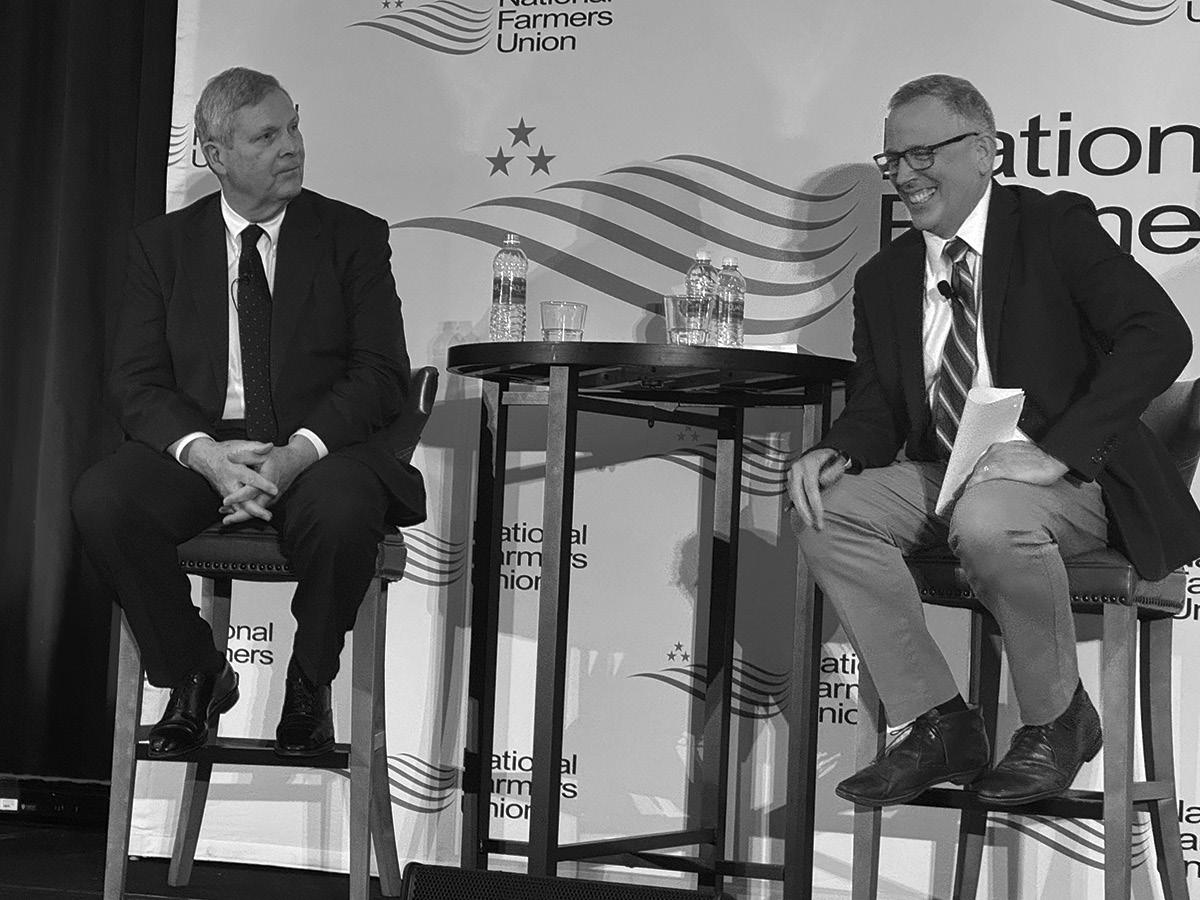
Truth in labeling and transparency in the cattle markets have been a focus of Farmers Union policy and advocacy efforts for decades, explained the fourth-generation Brown County cattle producer. In fact, fair markets for cattle producers is among the reasons he became actively involved in the organization in the late 1970s.
During Vilsack’s announcement, the
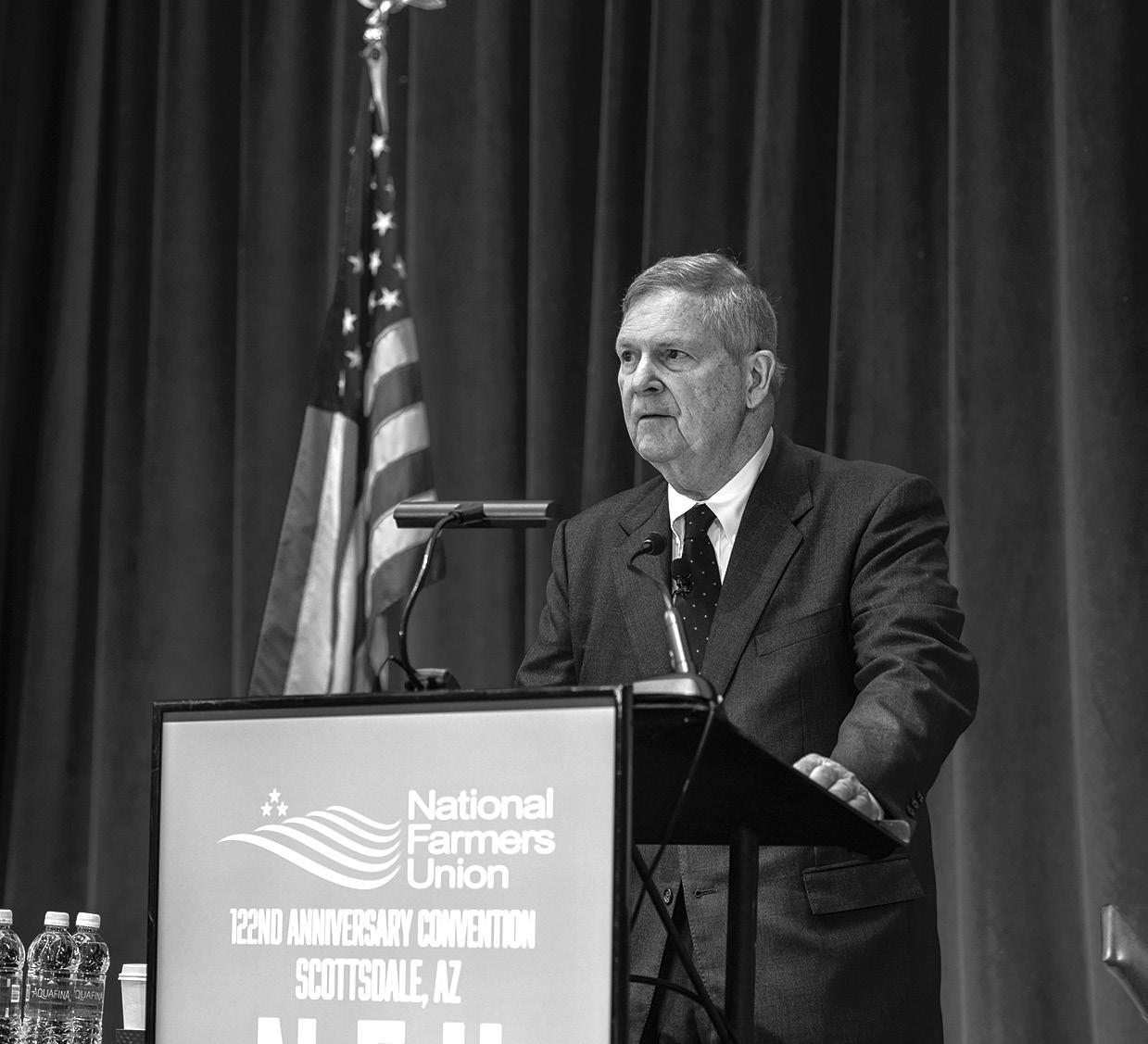
Secretary of Agriculture said consumer input influenced the USDA’s final ruling. He gave an example of the typical USDA/consumer conversation:
USDA: “When you see this label, what do you think it means?”
Consumer: “It means everything was done in the United States.”
USDA: “Do you place value on that? “In other words, are you willing to pay a bit more if the Product of the USA is on the label?”
Consumer: “Absolutely, we want to help our farmers.”
As Vilsack wrapped up the narrated consumer/USDA conversation, he said, “In order for that value proposition to be respected, in order for there to be fairness and honesty and proper representation in the marketplace, it is important for there to be rules like this.”
Parade cattle rancher Oren Lesmeister agreed. He said because of the USDA consumer data, livestock producers now have the proof they need.
“We finally got the federal government on our side when it comes to truth in labeling,” Lesmeister said. “And we finally have data to show that consumers do look at the label when they purchase meat. Livestock producers have been talking about this for more than a decade. I’m glad the USDA finally asked consumers for their thoughts and they listened to consumers.”
Although the announcement was just what Lesmeister wanted to hear, moving forward, he said he is nervously optimistic.

Ipswich cattle producer and SDFU delegate Lance Perrion understood Lesmeister’s caution.
“It’s good that the USDA is following through. Now the USDA needs to make sure those extra dollars get to cattle producers,” Perrion explained. “Now that there is proof that dollars are connected to the label, there is no way the dollars are going to get through to the producer because the packer is still between us, grassroots producers and the consumers willing to pay more.”
Holding packers accountable was also brought up in Vilsack’s comments. He explained that the USDA and Department of Justice are working to strengthen the Packers and Stockyards Act and he anticipates the USDA to roll out a price discovery rule for cattle.
Camp Crook cattle producer Jason Latham said he was happy to hear the Secretary of Agriculture discuss the Packers and Stockyards Act.
“The Stockyards Act could break up the packers but there is not enough enforcement – there are rules on the book that would make our markets more competitive, they need to be enforced,” explained the fifthgeneration rancher.
Latham said he and other ranch families need competitive markets in order for their children to consider taking over the family business. “It would be nice that when my kids take over, they could just focus on ranching. They don’t have to go out and look for other revenue streams.”
Like most South Dakota ranch couples, in addition to helping Jason on the ranch, his wife, Kaeloni, also needs an off-ranch career in order to meet the needs of the household budget.
Increasing on-farm profits was the overarching focus of Vilsack’s talk.
“I think one of the primary responsibilities of government is to promote economic opportunity for all,” Vilsack said. “We are continuing to work to build opportunity for small and mid-sized farming operation in the country.
For more than 60 years KELO Radio’s Bill Zortman has been giving rural citizens a voice. On March 11, National Farmers Union (NFU) recognized Zortman for his coverage of agriculture issues, presenting him with the Milt Hakel Excellence in Agricultural Journalism Award during the organization’s national convention held in Scottsdale, Arizona.
“This man has helped cover the story of agriculture and he has done a lot for us,” said Doug Sombke, President of South Dakota Farmers Union who presented the award to Zortman.
Reflecting on his long broadcast career, Zortman said his focus at 78 remains the same as it was as a 16-year-old covering sports for his hometown papers, the Onawa Democrat and the Onawa Sentinel.

“I let people have their say. That’s my job. That’s what a broadcaster does – whether it is with a pen or whether it is with a microphone or a TV camera,” explained Zortman, host of It’s Your AgriBusiness radio show.
Newspaper, radio and television – Zortman has worked in all news mediums throughout his career.

Growing up on a sheep farm in rural Iowa, Zortman got his start as a high school sophomore covering local sports for his hometown paper. He received a $100 broadcast scholarship to attend the University of Iowa. As a broadcast journalism student he began working as a radio show host and play-byplay sports reporter for KWAD radio station.
In 1968 he was called to military service with the 185th Air Guardsman of Sioux City and moved to New Mexico’s Cannon Air Force Base – but not before he was voted by Iowa City listeners as “The Most Popular Voice on the Radio.”
When he wasn’t working as a clerk on base, Zortman worked for the local radio station as a sports reporter. In 1969, release papers in hand, Zortman took a job working for an Amarillo, Texas, TV station.
“I got the job because when I was in New Mexico, the station
sent me a camera and asked me to shoot local news. I’d shoot stories and find a truck to take the film back to Amarillo which was 105 miles away.”
The TV station hired Zortman to build their coverage network.
“They said, ‘will you come in and show people in 40 or 50 communities how to film?’”
His drive, ambition and creativity did not go unnoticed. Zortman quickly rose through the ranks to news director. When he was hired, the station had 7 percent of the news audience. Under Zortman’s leadership, within 10 years the station captured 70 percent of the news audience.
“My philosophy was then, and is now, we cover the news, period,” Zortman said. “I let the facts tell the story. And I always taught my people, and still do, ‘you gotta tell both sides of the story. The story can’t be leaning left or leaning right.’”
To help tell the story, Zortman works to ensure those he interviews have the opportunity, “to have their say.”
“You’ve got to be able to make sure people trust you, and that you are not just knocking on one side of the street. I continue to do this today,” Zortman said. “If you do this, people will believe you and trust you.”
Throughout his career, Zortman has produced more than 5,000 TV news shows and nearly 5,000 radio shows.
While producing nearly 10,000 shows, Zortman has amassed several stories of his own that occurred while covering the news. Among his favorites to share is a story that comes from his early days as a high school sports reporter.
The West Monona Spartanettes girls high school basketball team was undefeated and during a game leading up to the championships, their coach came down with the mumps. There was no assistant coach, so he called Zortman and asked if would step in for him.
“I’m a junior in high school and he said, ‘here’s what I want, I will listen to the game on the radio, and you can be on the bench and talk the girls through what they need to do. You are a play-by-play guy if I ever saw one.’”
With the aid of walkie-talkies, Zortman helped coach the basketball team to an 81 to 33 victory. And the team ended up winning the 1964 Class A Women’s Basketball Championship.
Another of his favorite stories comes from his days as a TV reporter. He was covering a murder trial in Oklahoma.
“In those days you could film inside the courtroom. I was shooting
Bill Zortman
Continued on Page 13



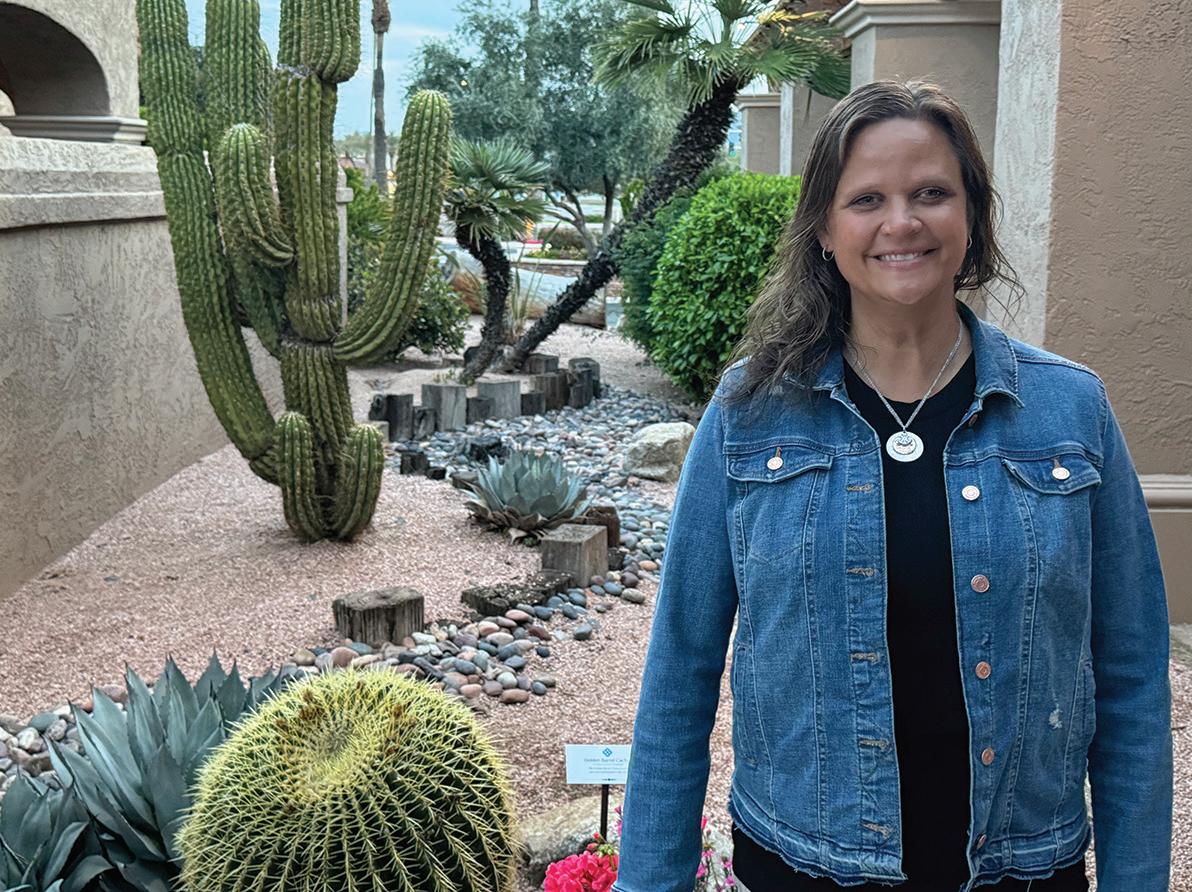
Sarah & Lance Perrion, Ipswich
“National Convention gives us an opportunity to learn about the follow through from our national organization as well as hearing from USDA officials to better understand if the government is actually hearing what we are asking for.”

Rob Lee, De Smet
“I appreciated the opportunity to learn from speakers and other farmers. It is interesting, that no matter where we farm, what our climate is like or what we farm, we do face similar challenges.”
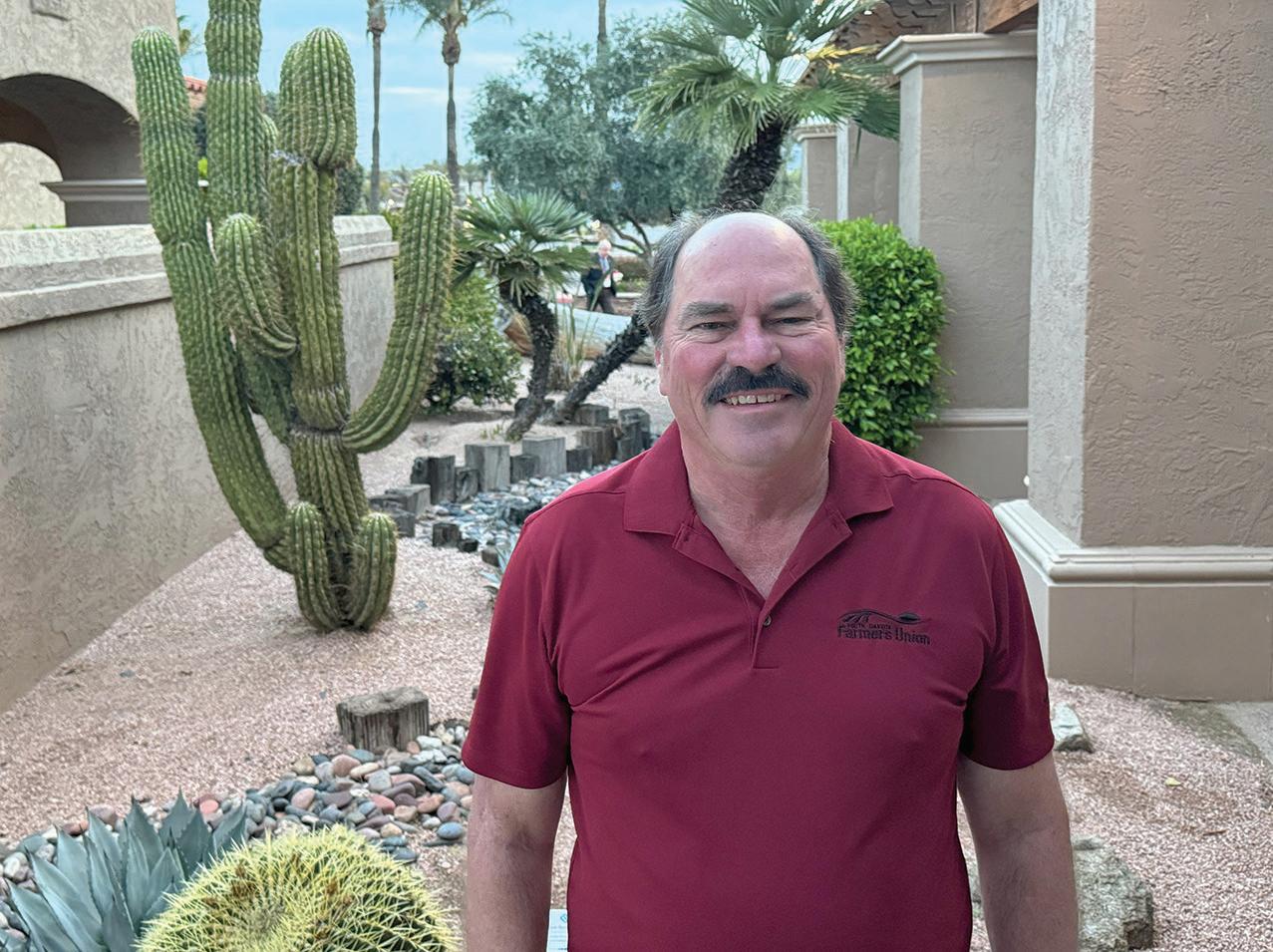
Wayne Soren, Lake Preston
“When I looked at our delegation, as compared to other states, we had a lot of diversity. I think we represented our state’s agriculture demographics very well.”
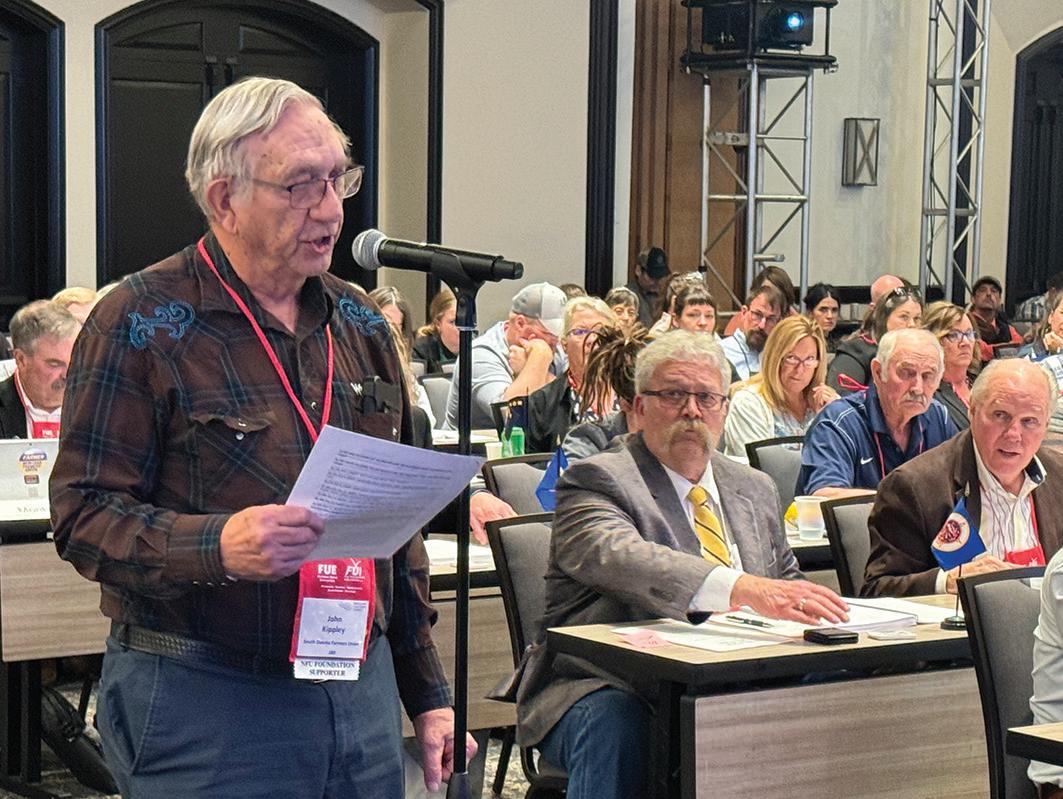
Gerri Eide, Gettysburg
“I enjoy the opportunity to get to know the FUEL participants. These young producers are inquisitive and very engaged in learning. They are looking for tools so they can become more involved in their communities.”
Rachel Kippley, Aberdeen
“During this year’s policy discussion, it seemed the states were more unified and focused on the big issues we all face – fair markets in the beef industry and getting a Farm Bill passed.”
John Kippley, Aberdeen
“The announcement from Vilsack on the labeling rule was one I have been waiting on. It was good news for the many cattle producers who have been sitting in limbo all these years.”
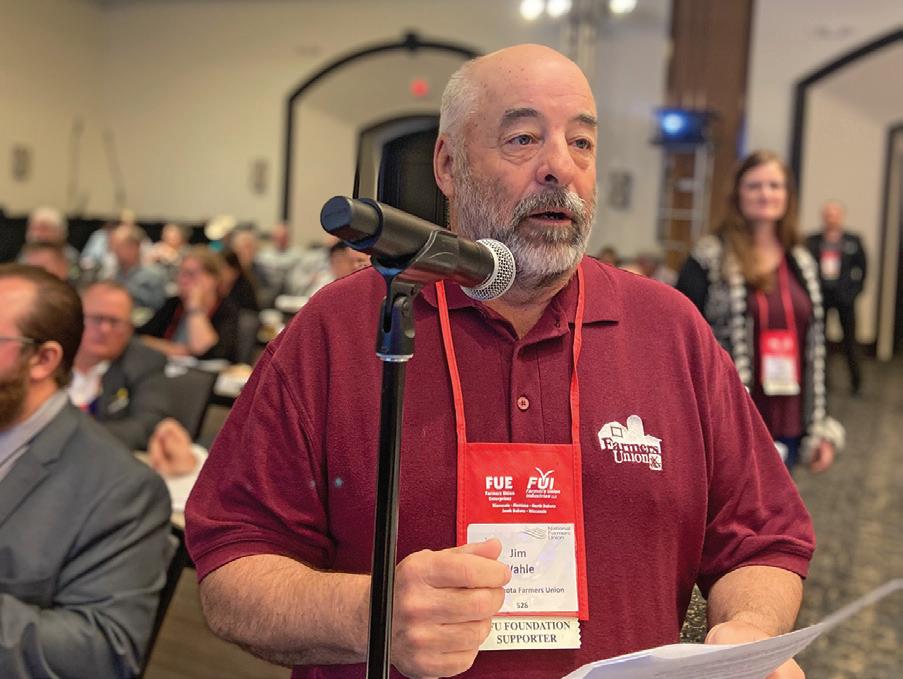
Jim Wahle, Salem
“Serving with the South Dakota delegation was an enjoyable experience. We sit together on the policy floor, so we can discuss what is going on and talk about what needs to be done.”


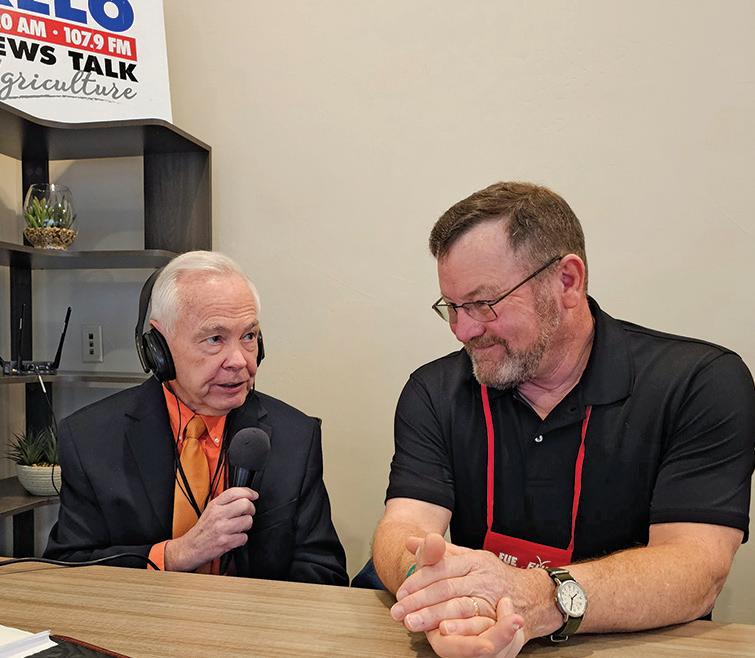
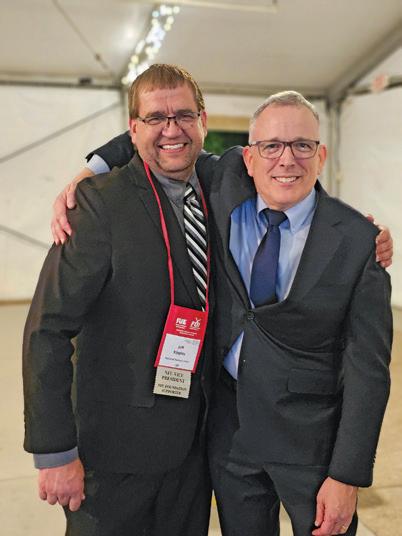
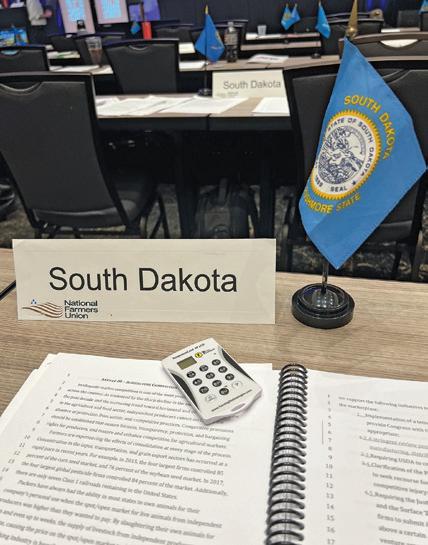

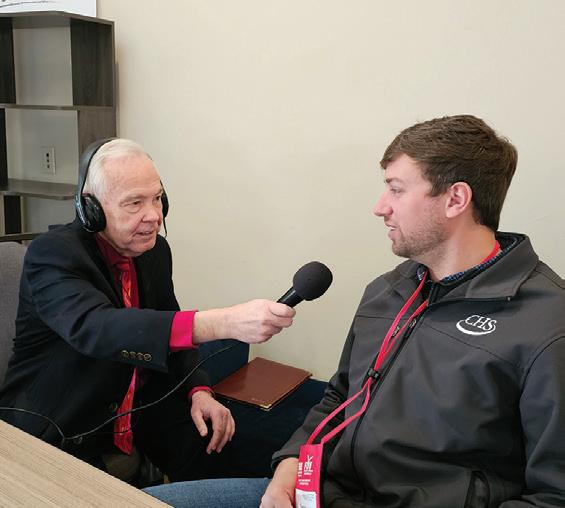



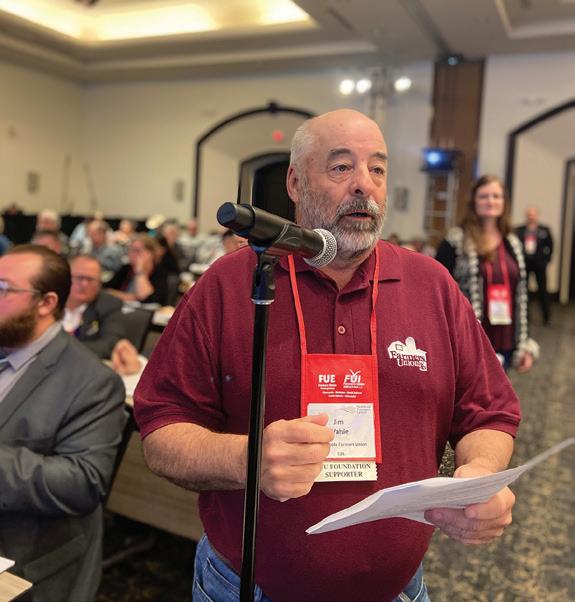
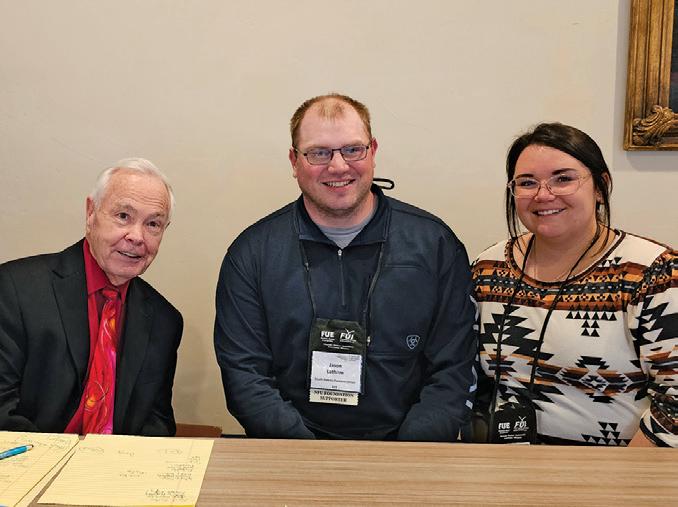
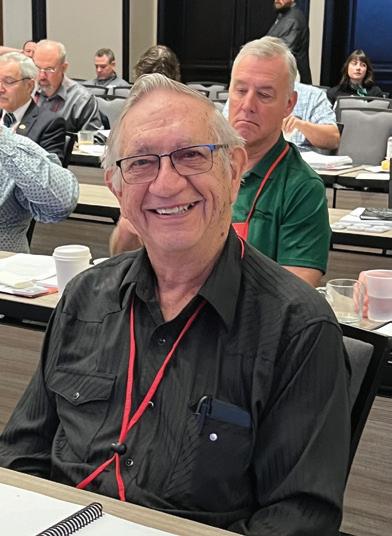

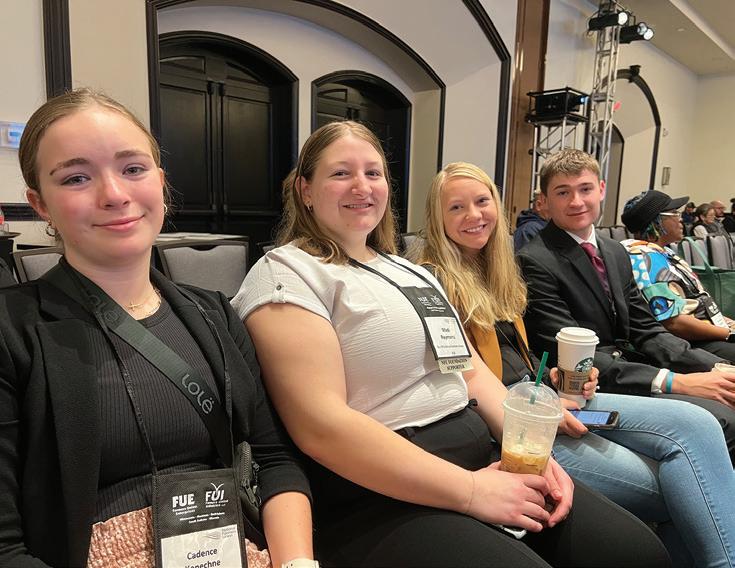


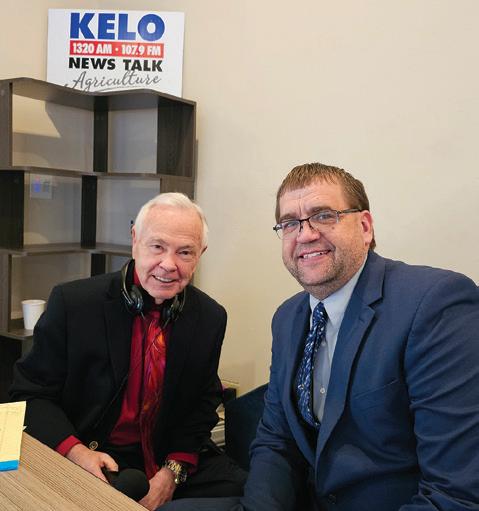


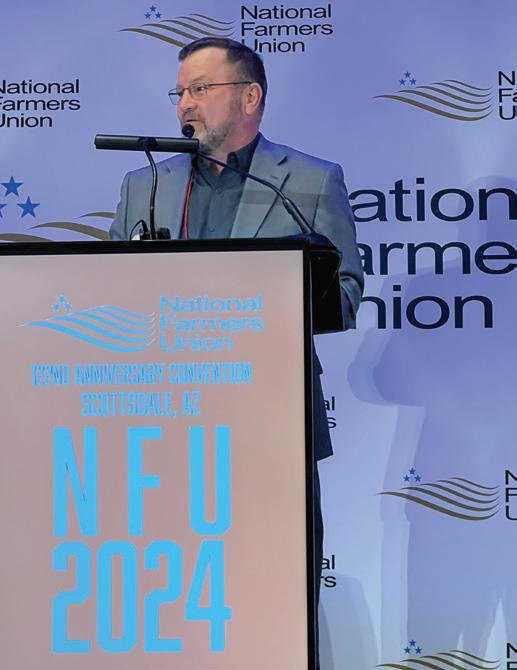

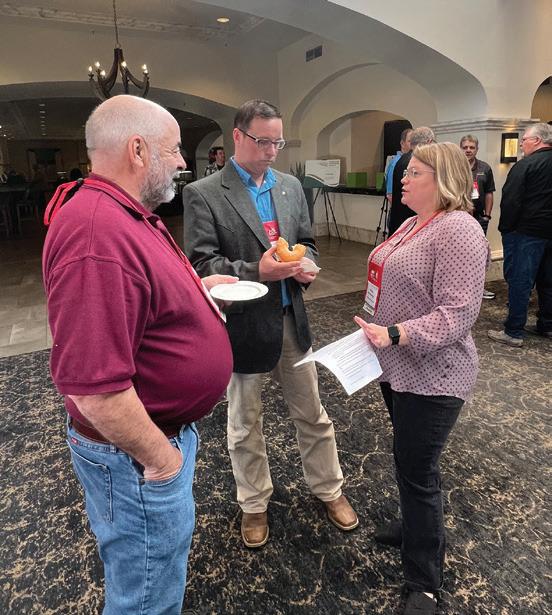
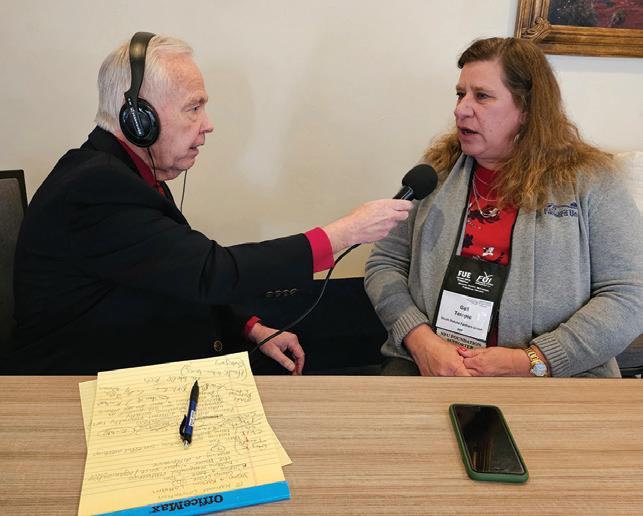
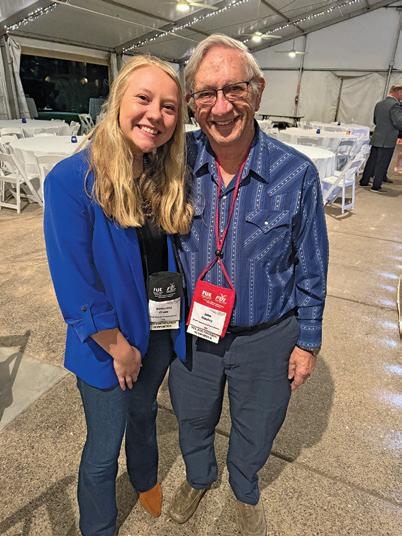
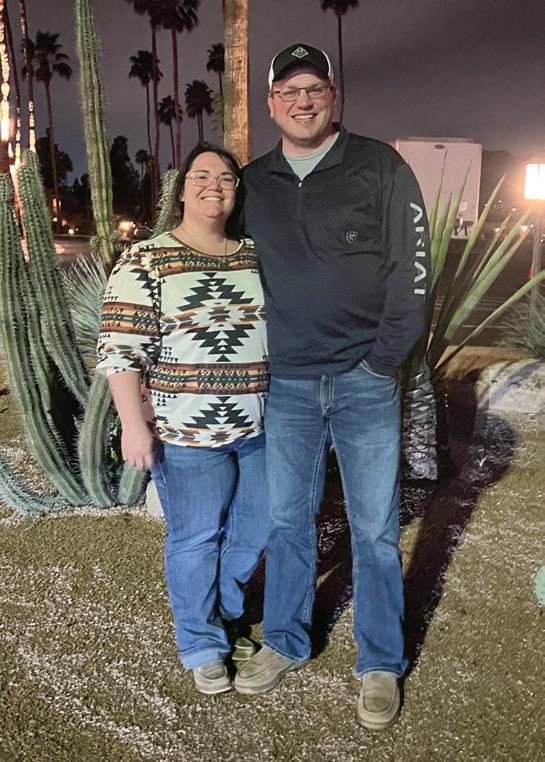


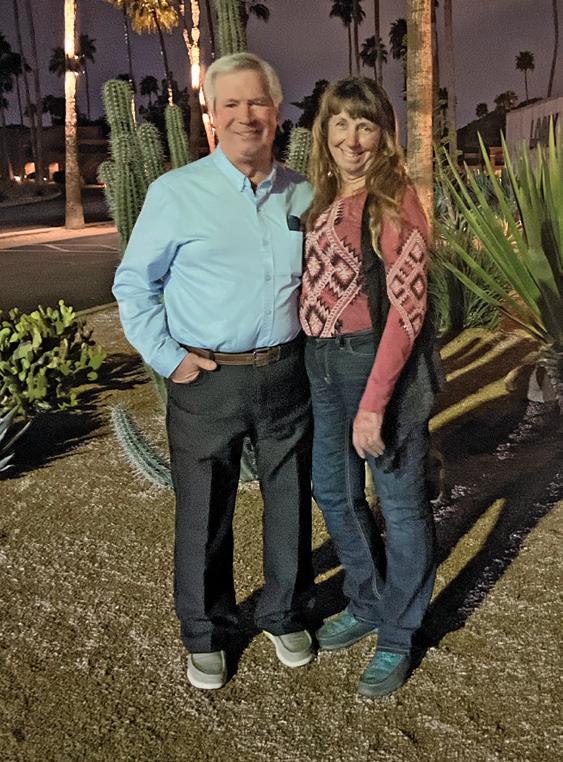
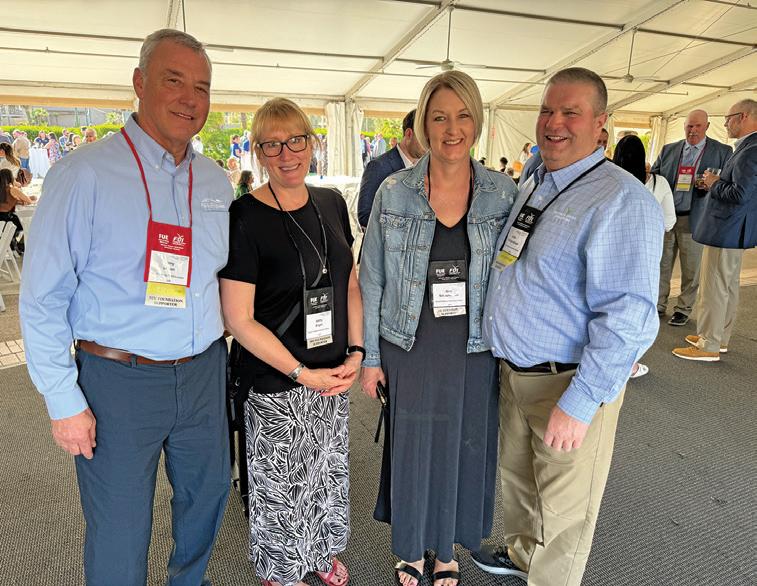
When Jason and Kaeloni Latham were asked if they wanted to participate in the 2024 Farmers Union Enterprises Leadership (FUEL) program, they quickly said, “yes!”
“It was an opportunity to help better agriculture, so why not,” said Jason, a fifthgeneration Camp Crook rancher.
The Lathams have three reasons they want to improve agriculture: Jaydon,9, Jarrett, 7, and James, 2.
“When you think about the future of agriculture, it does not look good. It is dying. We hear all the time that we are losing family farms and ranches. Up here, in Harding County, you see it all the time. A lot of places are selling,” Jason said. “We look at it this way – if we want our ranch to be around in the future, we need to try and make agriculture better for our kids. We need to step out of our comfort zone and try and do more. And participation in FUEL is definitely stepping outside my comfort zone.”
Sponsored by Farmers Union Enterprises, the organization which oversees Farmers Union Industries, FUEL is designed to strengthen young producers’ leadership and communication skills. FUEL seminars are held throughout the year.
The Lathams are two of 20 young farmers/ranchers sponsored by Farmers Union Enterprises to participate in the 2024
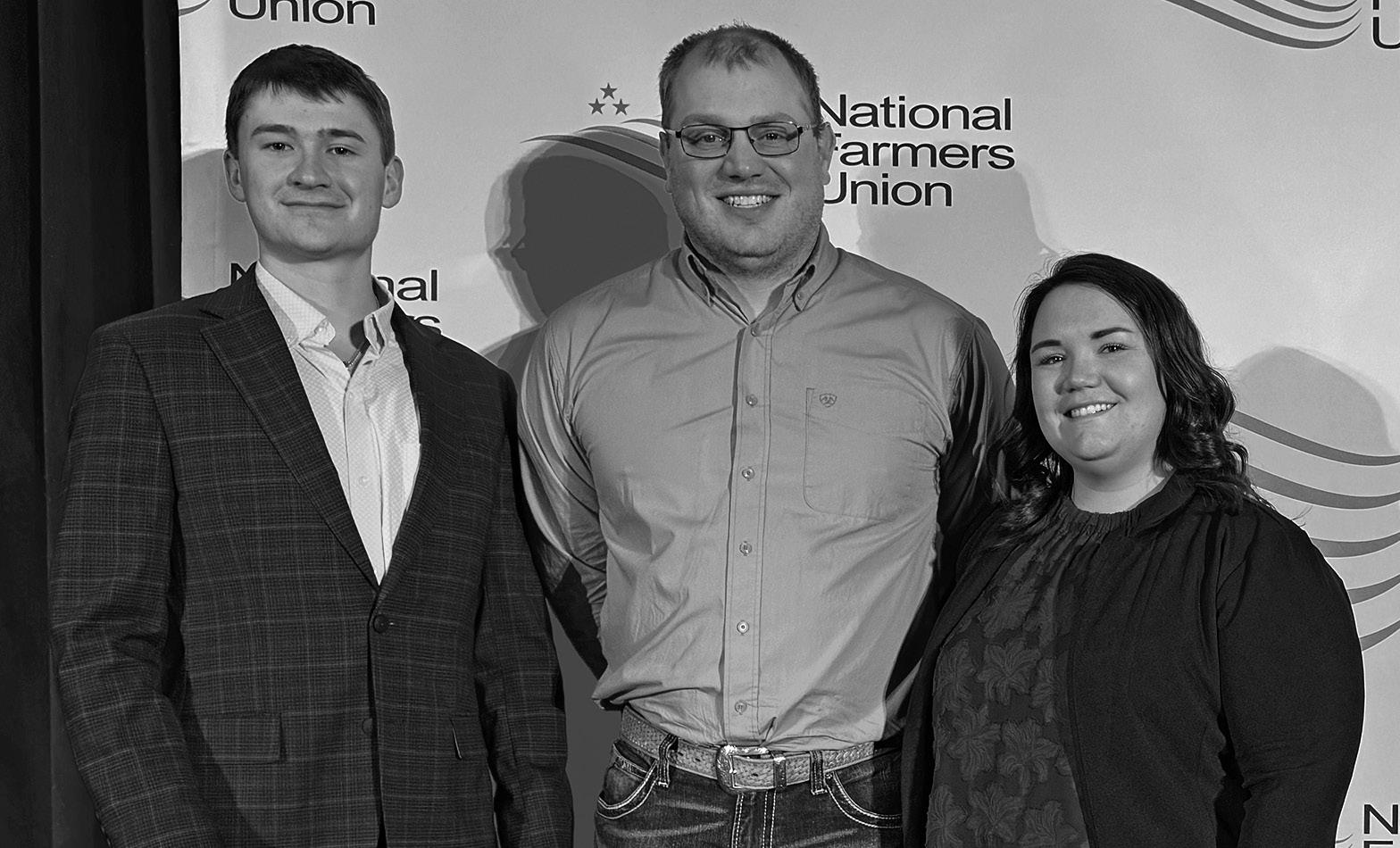
class. Individuals are selected from South Dakota, North Dakota, Minnesota, Montana and Wisconsin.
“We appreciate the opportunity to be involved in FUEL together,” Kaeloni said. “We have to do this ranch together to make it successful for our kids, so we need to be on the same page and FUEL helps with that.”
In addition to the Lathams, Mission rancher Chaz Blotsky is also participating in the 2024 FUEL class.
“In a time when many agriculture

organizations are concerned about the lack of interest in younger farmers and ranchers to take on leadership roles, we feel investing in the next generation is not only valuable to the future of family farming and ranching, but to the future of our organization as well,” explained Doug Sombke, SDFU President.
Leadership in action
The Lathams attended their first FUEL seminar during the 2024 NFU National Convention in Scottsdale, Arizona.
During this first seminar, FUEL members received an overview of National Farmers Union, received parliamentary procedure training, gained insight into their personality strengths and received tips on how to have tough, but necessary conversations.
They also met with NFU President Rob Larew and Vice President Jeff Kippley. Kippley is also Vice President of South Dakota Farmers Union. Kippley credits the FUEL programming he and his wife, Rachel, received with the decision they made to become actively engaged in Farmers Union and ultimately run for an NFU leadership position.
“We enjoyed every speaker,” Kaeloni said. “They were all interesting and the information was useful.”
Blotsky agreed.
“The speakers were cool and eye-
2024 South Dakota FUEL participants: Chaz Blotsky, Jason and Kaeloni Latham.opening. I learned something from each one – about advocating for farmers’ rights, about parliamentary procedure, about myself,” Blotsky said. “This first FUEL seminar gave me additional confidence in myself and my ability to use my voice for agriculture.”
Blotsky got to know Farmers Union as an elementary-age camper. He became a youth leader, serving as a member of the Junior Advisory Council and receiving his Torchbearer Award in 2022. Today, he serves on the Senior Advisory Council.
Participation in FUEL is one more way that Blotsky can remain engaged in the organization he values.
“FUEL gives me a way to stay connected to Farmers Union,” Blotsky said. “It is interesting too, because I learned about parliamentary procedure from Gerri (Eide) when I was a camper, and I got to receive training from her again as a FUEL participant.”
Jason added that it was quite timely to receive training in parliamentary procedure during the National Convention.
“During NFU policy, everything happens so fast and it can be tough to follow it if you don’t understand parliamentary procedure,” Jason said.
Get to know Kaeloni & Jason Latham Laughter.
This is the response Jason Latham would have given anyone suggesting that he would be working full time on his family’s ranch alongside his dad, Darwin.
“One-hundred percent, I was not going to ranch. I was going to become a teacher,” Jason explained.
But after student teaching, Jason’s confidence in his chosen career path began to wane. He spent a few years working in the oil field and as a wildland firefighter.
And then his grandpa became ill and his dad needed help.
“At the end of the day, ranching is the job I enjoy most because of the sense of accomplishment I get at the end of the day,” Jason explained. “I like looking back and seeing what I’ve done and feeling good about it.”
Kaeloni works off the ranch full time, but when she is home, she enjoys helping Jason with ranch work. She also appreciates the childhood the ranch provides to their sons.
“I love that my kids have chores and responsibilities at their young ages, but also, they can go outside and go wherever they
“I wanted to bring knowledge back to our ranch to help not only me but my entire family,”
– Chaz Blotskywant and I don’t have to worry about them,” Kaeloni said. “There are days when our two older sons will put snacks in a backpack, grab their BB guns and go shoot prairie dogs.”
Get to Know Chaz Blotsky
Chaz Blotsky grew up helping his mom, Kodi, Grandpa Bill Abbot and Uncle Bryan on the family’s ranch near Mission. Over time he’s built up his own herds of cattle and meat goats.
He’s proud to be the fifth generation to raise livestock on his family’s land. In fact, it’s the reason he decided to pursue a degree in agricultural business at Mitchell Technical College.
“I wanted to bring knowledge back to
our ranch to help not only me but my entire family,” Blotsky said.
Currently enrolled in marketing classes, Blotsky said he is accomplishing his goal.
“I do not know how I will be connected to my family’s ranch, but I know I will always have some kind of connection to my family ranch, so I want to do what I can to help improve things.”
Involvement in Farmers Union through FUEL is another way Blotsky sees himself expanding his knowledge for a future in agriculture.
“Connecting with family farmers and ranchers from South Dakota and other states helped me realize that we all face similar challenges, but it is not me against the world as a rancher – it is all of us in Farmers Union working together,” Blotsky said.
Focused on the future
Providing support to family farmers and ranchers of all ages is a focus of South Dakota Farmers Union. To learn more, visit www.sdfu.org n By Lura Roti
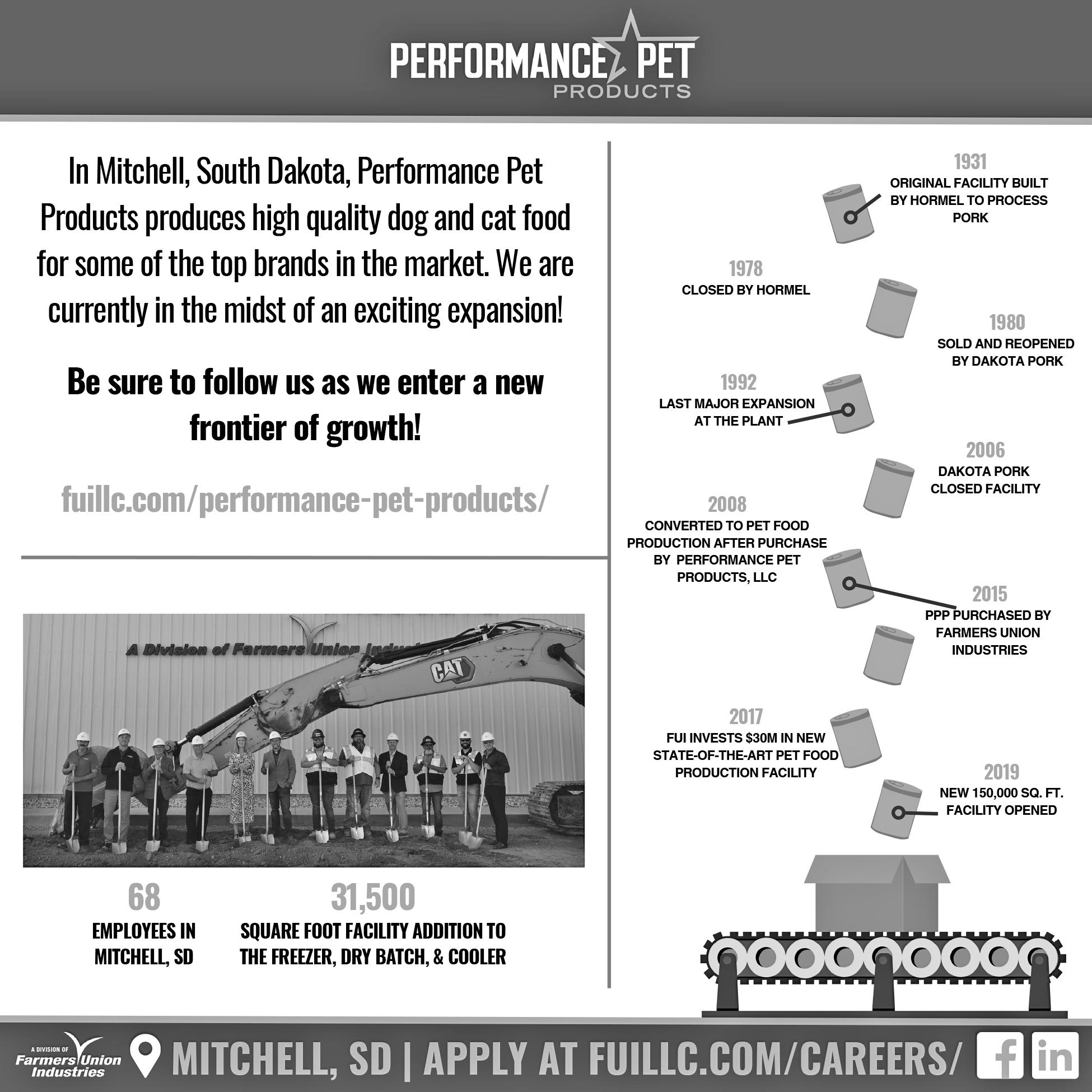
Many years ago, a priest shared words of wisdom with David Reis that the Reliance rancher never forgot.
“He told me, ‘if you don’t hear babies crying in the pews, you just as well lock the doors because your church is dying.’”
A third-generation Lyman County cattle producer, Reis applies this wisdom to the agriculture and community organizations he is actively involved in and works to invite younger members to join.
“What has worked in the past does not always work today. What works today won’t necessarily work in the future,” Reis said. “To be ready for the future, we need to bring in new members, be open to change and be ready to learn and grow.”
Reis was recognized for his leadership and efforts to increase membership with the Bruce Miller Membership Award during the 2024 National Farmers Union Convention held March 10-12 in Scottsdale, Arizona.
“David is someone who leads by example and works to welcome the next generation of family farmers and ranchers to Farmers Union,” said Karla Hofhenke, Executive Director of South Dakota Farmers Union. “Through his efforts, many young ranch families have joined. We are grateful for his efforts because new members bring fresh ideas and new perspectives to our organization.”
Reis has served on the state board of directors for South Dakota Farmers Union since 2018. He said investing time and energy in Farmers Union and other organizations is how he gives back.
“If you have been blessed in your life, like I feel we have been, you should take the time to give back,” Reis said.

Opportunity to work with family is priceless
Reis grew up on his family’s Reliance ranch. He said he always knew his life’s work would be ranching. And he considers himself fortunate to continue the legacy of his dad, Gordon “Bus,” and mom, Peggy. The family runs a commercial cow/calf herd and works to manage their grasslands to meet their herd’s forage needs.
Since 1975, Reis has gotten to do the work he loves with the woman he loves. He and his wife, Brenda, have worked side-by-side for nearly 50 years.
“I have been able to live out here on the ranch and raise up four kids with my wife working right here with me,” Reis said. “We maybe did not have all the money we could have had if we’d had town jobs, but we had all the time we ever wanted to spend with each other. It has been priceless to spend time with each other, our kids and now our grandkids.”
Reis Ranch is located on rangelands that make up the rolling hills of the Missouri and White River valleys in central South Dakota. The landscape makes working from horseback a necessity.
“The country is rough enough that it is hard to do the work that needs to be done with anything other than a horse. And I have always thought working with a horse is more enjoyable,” Reis said. “Things move at a slower pace, and you get to observe your cattle
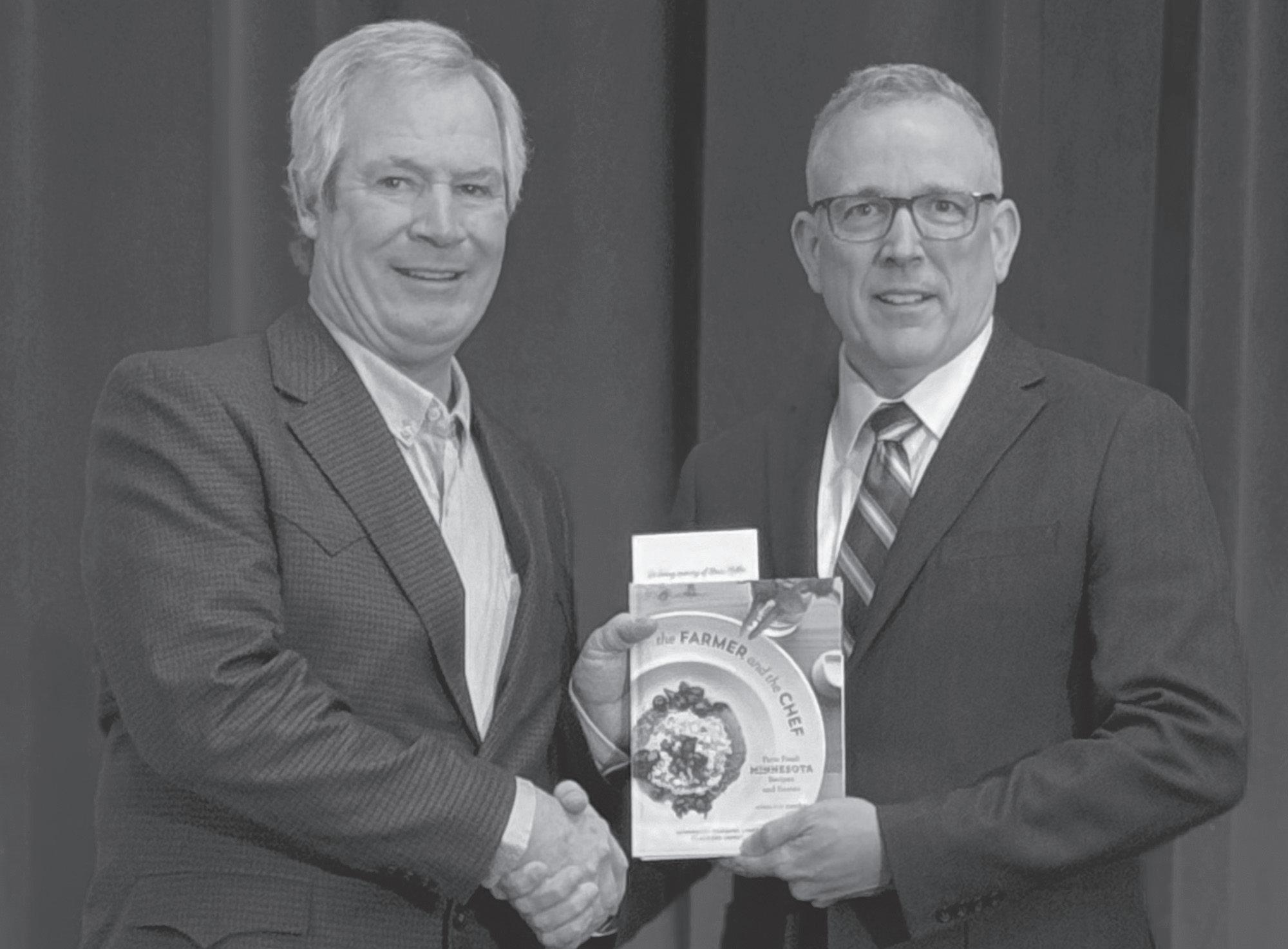
and the grassland more closely.”
Because of their connection to ranch work and horses, over the years the Reis family has been actively involved in rodeo. They are members of the local Horseman’s Club and for decades the couple helped host local 4-H and high school rodeos. He has served on the local school board, township board, advisory board of St. Mary’s Church and volunteer fire department.
He is also a member of the Reliance Area Community Development Group. This group puts on an annual dinner theater for the community. Known for his ability to provide comic relief, Reis has had at least one acting role in every play. The event funds college scholarships for area youth.
“Most of what I do, for Farmers Union or my community or other agriculture organizations is for the next generation. I’m always working to make things better for our children and grandchildren,” Reis said.
On their own ranch, David and Brenda also help their 12 grandkids save for college. “When the grandkids turn 5, Brenda lets them pick out a heifer calf. They raise it and they get the money from the steer calves it has and they are able to build up their own cow herd.”
In addition to Farmers Union, Reis is also a member of South Dakota Stockgrowers, R-CALF, serves on the board of directors for the South Dakota Beef Industry Council and represents South Dakota on the National U.S. Meat Export Federation board of directors. To learn more about the Reis family ranch, read a 2015 article by visiting www.sdfu.org and click on the South Dakota Farm & Ranch Family link under the About Us Tab. n By Lura Roti

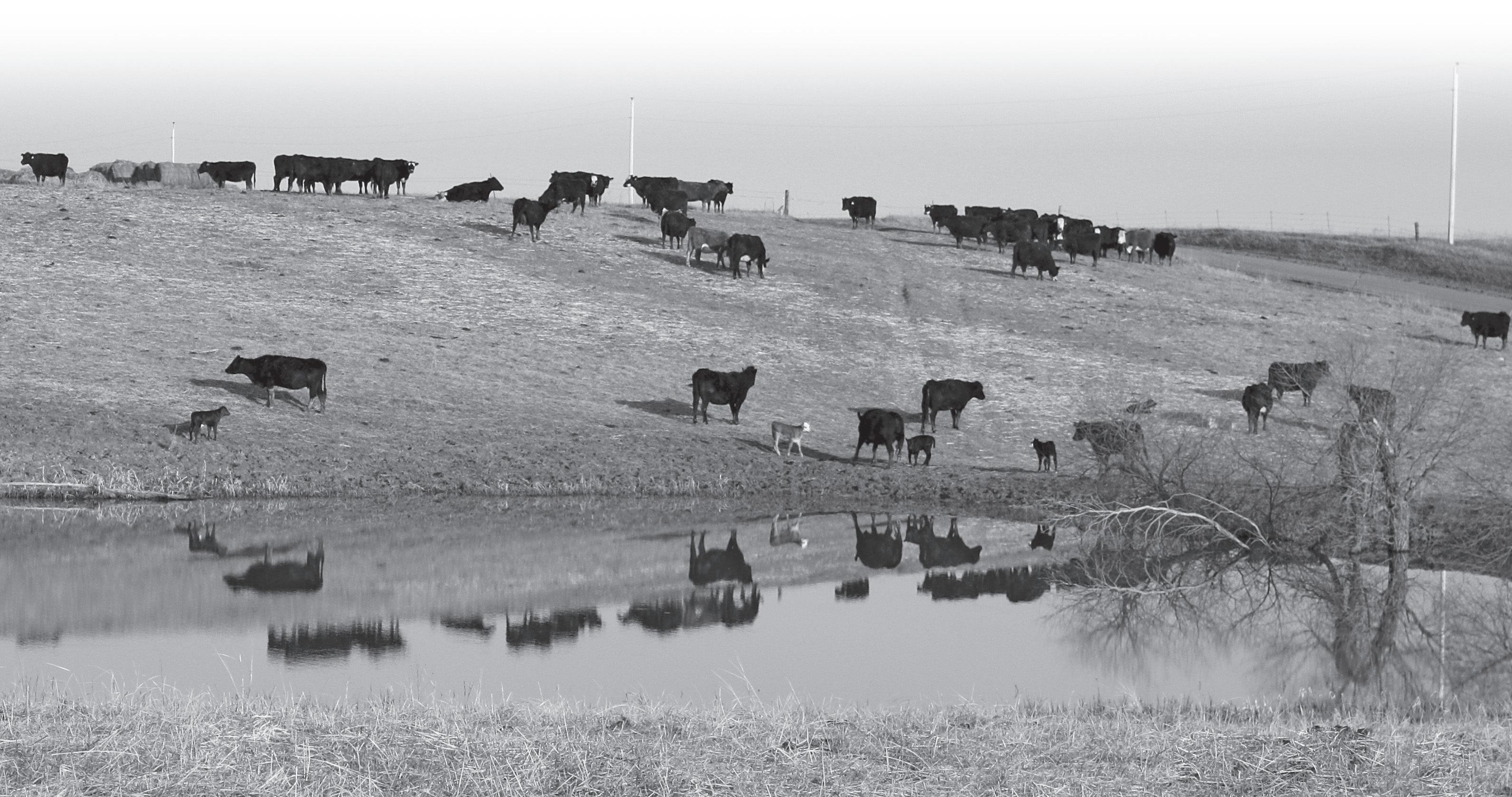
Representing nearly 20,000 family farmers and ranchers throughout South Dakota in his role as South Dakota Farmers Union President, Doug Sombke was re-elected to serve as Treasurer of the national organization’s executive board during the 122nd NFU Convention, held in Scottsdale, Arizona, March 10-12.
“My first priority is serving South Dakota Farmers Union members. This role strengthens my ability to ensure national lobbying efforts clearly represent South Dakota’s members,” explained Sombke. “By serving on the executive board, I work closely with NFU president and staff. I have a lot more input on what is happening and how we are implementing our current policy and special orders of business.”
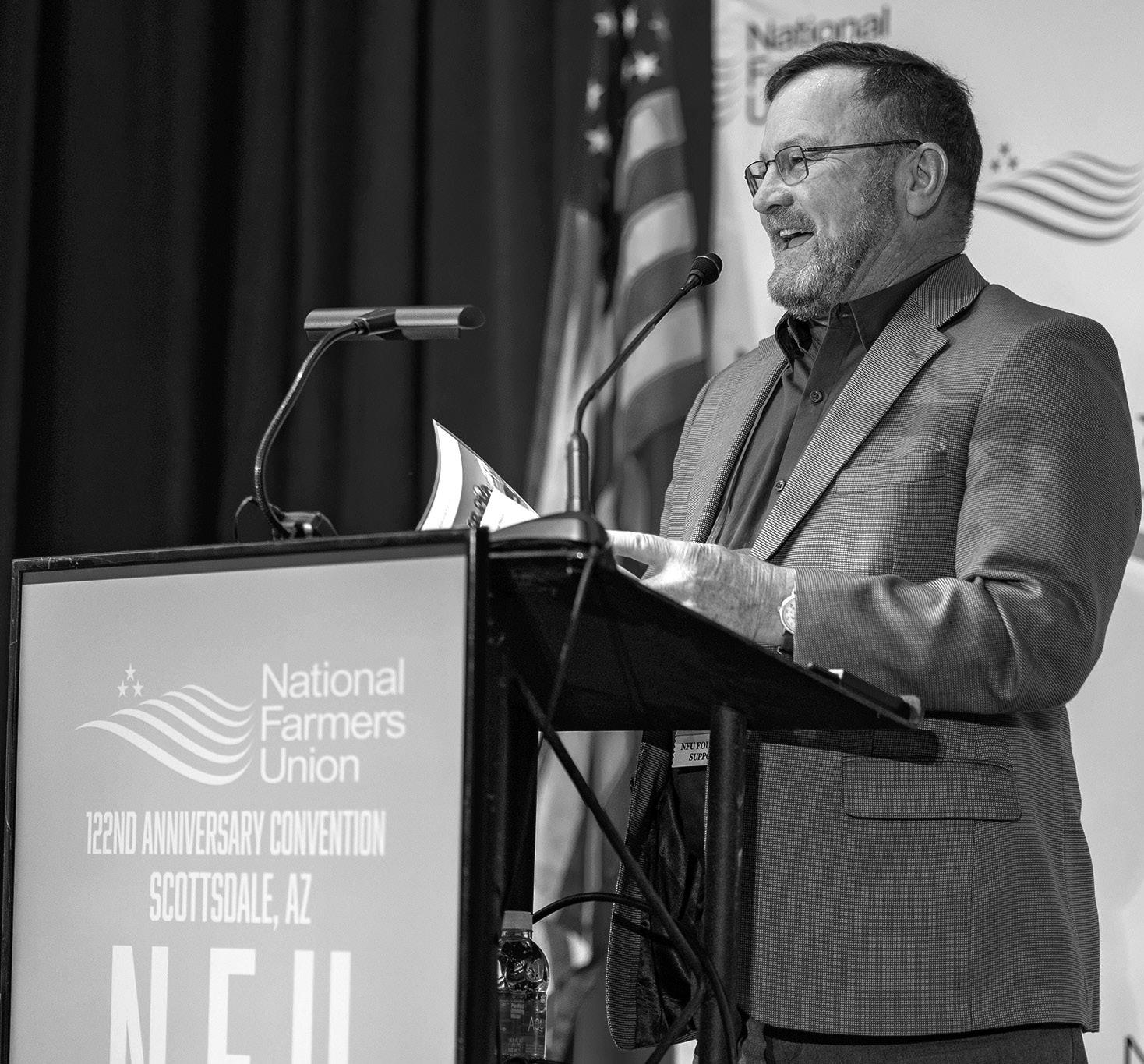
As NFU Treasurer, Sombke provides oversight to the national organization’s finances. Sombke also serves on the board of directors for Farmers Union Enterprises, the organization that oversees Farmers Union Industries.
Farmers Union Industries is made up of
Continued from Page 7
this trial and the judged called me before the bench, he said, ‘I didn’t tell you that you could shoot pictures. Come to my chambers during the break.’
“Well, I’m thinking, ‘this is a two-brother murder trial. He is going to ask me to hand over my film.’ So, I took the film that was in the camera and found a truck heading to Amarillo, and gave the driver a few bucks to take my film back to the station,” Zortman said.
Zortman returned to the courtroom. And things went just like he predicted. Only the film the judge requested was safely on its way to Texas.
Zortman has a photo to commemorate the day because ahead of the trial, he was filming a local festival and he ended up being asked by a petting zoo worker if he wanted to have a photo taken of him and his camera riding a donkey. The photo hangs in his office today.
“I’ve had some wild stories happen to
several businesses — the dividends of which help fund Farmers Union organizations in South Dakota, North Dakota, Minnesota, Montana and Wisconsin as well as Farmers Union Enterprises programs and National Farmers Union.
The diverse business portfolio Farmers
me. The crazy thing is, they are all true,” Zortman said.
Farmers are counting on us
Covering agriculture has always been part of Zortman’s career. “Agriculture is our biggest industry. I always tell reporters, ‘We have farmers out there counting on us to tell their story.’”
For many years, Zortman was a correspondent for Orin Samuelson’s U.S. Farm Report.
Zortman and his wife, Carolyn moved 18 times for Zortman’s career. Their last move was to the Sioux Falls area in 2000.
Zortman moved to South Dakota after spending years working with KSFY TV, which was one of more than 40 TV stations he helped oversee as an original shareholder of a nation-wide television network.
When the network was bought out, Zortman took a break from journalism and served as the Executive Director for the Red Cross of South Dakota and Nebraska. He helped guide the non-profit though the
Union Enterprises oversees includes grain-free pet food, grease and animal rendering plants. Like the organizations it supports, Farmers Union Industries also focuses on funding policy and advocacy.
A fourth-generation Conde farmer, today Sombke’s three sons have all returned to the farm where they raise crops and operate other value-added enterprises.
Sombke’s clear understanding of the life and challenges family farmers live and face daily serve him well in his leadership roles as SDFU President and NFU Treasurer, says Rob Larew, President of NFU.
“You can talk about agriculture, but unless you’ve planted corn, fed cattle and endured several market cycles, it’s hard to appreciate how stressful and important every decision can be to a family’s farming operation,” Larew said. “Doug understands agriculture because he is a farmer. He lives it.”
n By Lura Rotitragic 2001 events of 9-11.
In 2007, Zortman returned to journalism, when he joined the KELO Radio team. As the host of It’s Your AgriBusiness Zortman got to know South Dakota Farmers Union. He helped them launch a monthly radio show in 2014. Over the years he has shared the stories of many South Dakota’s farm and ranch families. Zortman has traveled with the organization, broadcasting live from several state conventions, D.C. Fly-Ins and national conventions.
“Agriculture is South Dakota’s biggest industry and I enjoy the people and sharing their stories. And I always make sure to feature the next generation,” Zortman said. “I always ask those I’m interviewing, ‘what will you say about your decision to the next generation?’ It is our job to pass the torch to the next generation. So, I want people to think about how the decisions they make today will impact the next generation.”
To learn more about Bill Zortman, visit KELO.com n By Lura Roti for SDFU
Family farmers and ranchers from across the nation elected Aberdeen farmer, Jeff Kippley to serve a second term as the National Farmers Union Vice President March 11, during the organization’s national convention held in Scottsdale, Arizona.
“There is more work to do, and I am eager to continue to work hard for you,” Kippley said.
President of South Dakota Farmers Union Doug Sombke agreed.
“Jeff Kippley has been such a great addition to National Farmers Union,” said Sombke, who also serves as Treasurer of National Farmers Union. “His background as a farmer and an accountant is valuable in the national boardroom and in the offices of D.C. policymakers.”
Sombke added that he appreciates serving with Kippley on the state and national level because Kippley is serving for the right reasons.
“Like all of us serving in Farmers Union leadership, Jeff is a family farmer who wants a better future on the farm for his kids,” said Sombke, who farms with his three grown sons. “Policy changes need to be made to ensure fair prices for crops and livestock so the next generation can earn an income farming and ranching.”
Jeff Kippley and his wife, Rachel, have four children: Noah, 17; Titus, 15; Aaron, 11; and Moriah, 9.
Advocating for policy to support fair prices for farmers & ranchers
Kippley raises crops and cattle together with his dad, John, wife, Rachel, and their four children near Aberdeen. But like so many family farmers and ranchers across the nation, the Kippley farm income is
Vilsack
Continued from Page 6
“I am concerned about the continued erosion of the number of farm families who believe they have the opportunity to continue to do what they love to do, which is to farm, and to continue to do what they love to do, which is to pass it on to the next generation.”
In addition to increasing fairness and


not enough to support their family. So, together with family, the Kippleys own a tax preparation service. Rachel also works off the farm as the Fair and Park Manager for Brown County.
“As tax advisers, we see the numbers behind many family farms and ranches. And it’s not just our family farm that needs offfarm income to stay afloat financially – it is the majority of family agriculture producers,” Kippley said.
As National Farmers Union Vice President, Kippley will continue to advocate for:
• Price Transparency
• MCOOL (mandatory ountry-of-origin labeling)
• Landowner Rights
• Higher Ethanol Blends like E30
“Policy changes need to take place soon, so our children can earn a fair living on the family farm or ranch,” Kippley said.
A farmer fighting for farmers
transparency for livestock producers, Vilsack discussed:
– USDA programs designed to financially incentivize crop producers for conservation efforts
– Grants to increase local food processing facilities
– USDA work to support renewable aviation fuel
National Farmers Union Vice President Kippley travels the nation to meet with Farmers Union members. During his first term, he worked to grow membership and guarantee the voice of farmers and ranchers is heard by policymakers in D.C. In his second term, he plans to continue this work.
“Although family farming and ranching operations in other parts of the U.S. may not look like they do in South Dakota – regardless of commodities raised or size, the challenges we as family farmers and ranchers face do look much the same,” Kippley said. “When I meet with policymakers, I make sure they understand that they are talking to a family farmer about real issues impacting family farmers and ranchers. It is important the policies put in place for agriculture producers actually work for us.”
To learn more about Jeff Kippley, visit www.sdfu.org n By Lura Roti for SDFU
And more.
“We are working to expand opportunities so that farmers can generate multiple sources of income,” Vilsack said. “We recognize we need to level the playing field and make sure that farmers have a fair shake at the marketplace.” n By Lura Roti
Scan to watch NFU swearing in ceremony Aberdeen farmer and SDFU Vice President Jeff Kippley was elected to serve a second term as NFU Vice President during the 2024 NFU Convention.Before attending the Farmers Union College Conference on Cooperatives, all Landen Melius knew about cooperatives was from doing business at the local grain elevator and Chelsea Cenex station.
Today, he knows much more thanks to touring several Minnesota-based cooperatives – each with a different focus –during the three-day event.
“Cooperatives exist because in most cases one guy can’t build a grain elevator or start a grocery store. But by working together with a large group of people who want the same thing, the cooperative business model can be a way to do this,” explained the fifthgeneration Faulk County farmer.
Melius was one of 14 students from Lake Area Technical College sponsored by South Dakota Farmers Union to attend the conference.
“For more than a century, the cooperative business model has been utilized by rural citizens to access necessary infrastructure – like electricity and water,” explained Doug Sombke, President of South Dakota Farmers Union. “Today, many of us continue to benefit from services provided by cooperatives, so it is important to educate the next generation on what co-ops are and how they work so they can ensure this business model will continue to thrive.”
In addition to touring a grocery cooperative, Melius and 76 other college students from across the U.S. toured a housing co-op, sporting goods co-op and heard from cooperative leaders representing Compeer Financial, National Rural Electric Cooperative Association, CROPP/ Organic Valley, Northcountry Cooperative Foundation, National Co-op Grocers and more.
After attending the conference, Melius said he plans to be a more engaged cooperative member.
“Cooperatives play a big role in our community,” said Melius, who plans to return to his family’s farm full time after he graduates this spring. “As someone who plans to live in this community another 50 years, hopefully farming, I need to take an

interest in our cooperative and consider serving on the board because most of the board members are at least 55. Not that this is a bad thing, but why shouldn’t the 25-year-old kid who lives down the road and farms, also serve?”
Melius and the other Lake Area students who attended the conference are currently enrolled in a Cooperative Principles class. Their instructor Jeffrey York said he appreciates the opportunity this conference and Farmers Union provides.
“I appreciate Farmers Union and the opportunity for Lake Area Technical College students to see how the cooperative business model works in industries that support agriculture and its surroundings,” York said. “The students were able to tour a cooperative grocery store, housing, retail and banking co-ops. They also heard from speakers from the electric cooperatives. Thanks to Farmers Union, this experience allows students to see the whole picture when it comes to cooperative business model.”
Ag business/commodity merchandising
major Maddie Luvaas agreed. “Even though we learn about cooperatives in Jeff’s class, classroom learning is much different from what I learned by touring a co-op or listening to someone speak who works for a co-op. I know so much more today about cooperatives, after attending this conference than I knew just a week ago.”
Classmate Kendra Wetz added that in addition to learning more about how the cooperative business model works, she appreciated the opportunity attending the conference gave her to network with other young agriculture professionals.
“Networking with students from other schools gives you a look at every side of agriculture and gives you a different look at what is going on in the world of agriculture,” said Wetz, who will graduate with an agriculture business degree this May.
To learn more about the educational opportunities South Dakota Farmers Union provides to South Dakotans of all ages, visit www.sdfu.org n By Lura Roti for SDFU
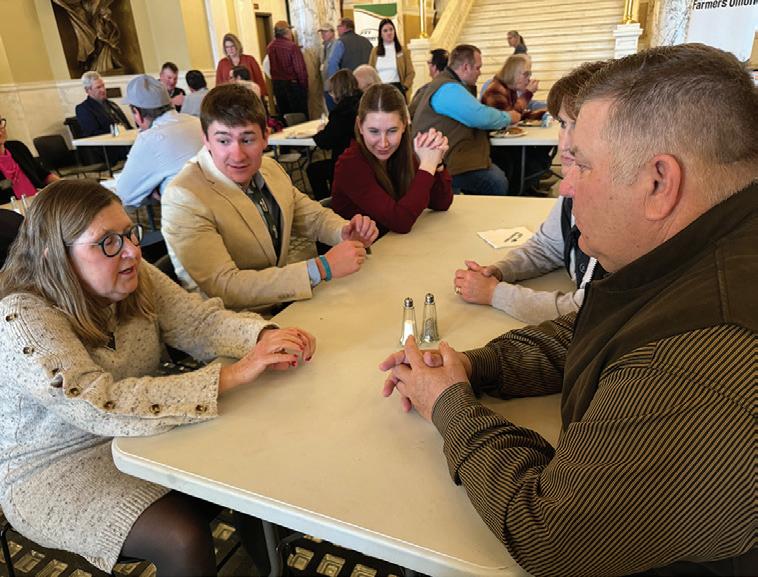


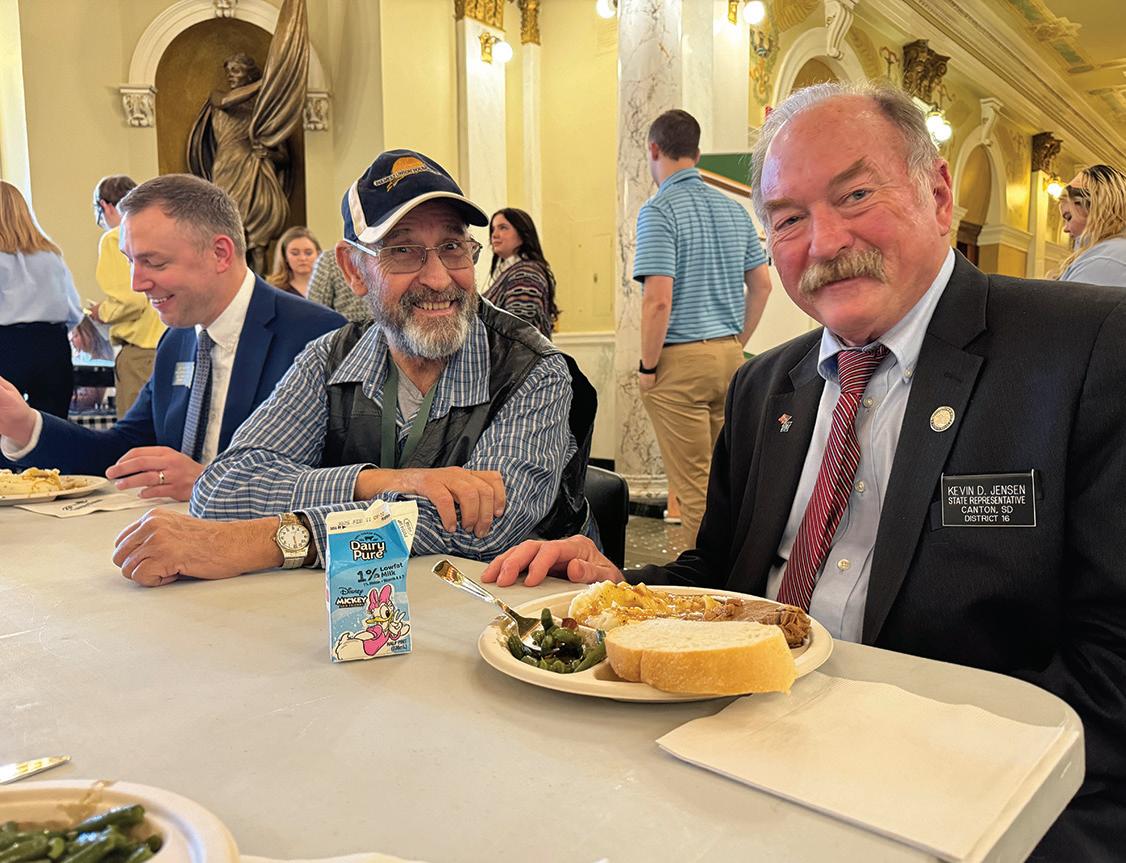

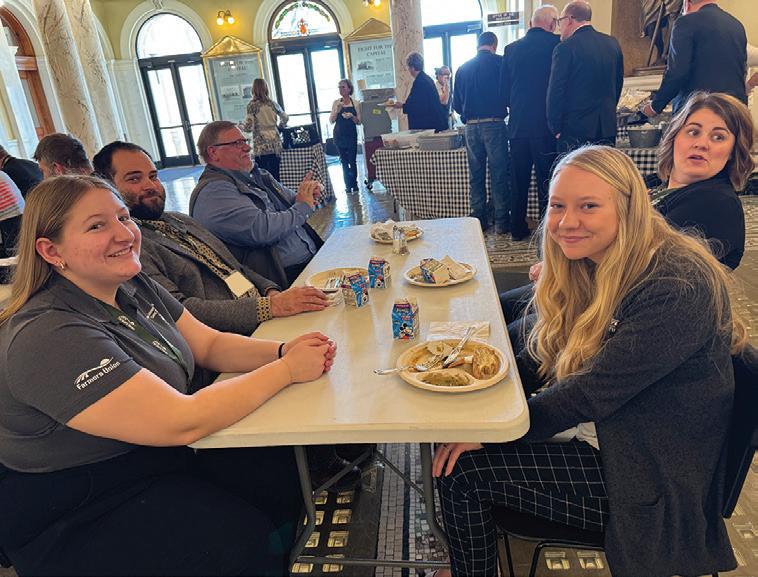




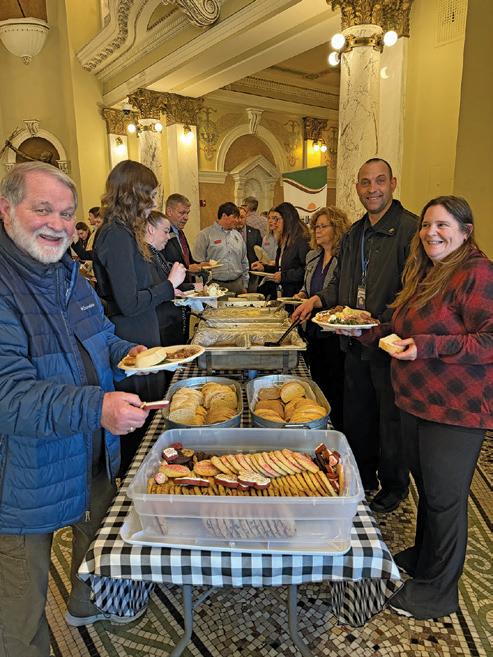
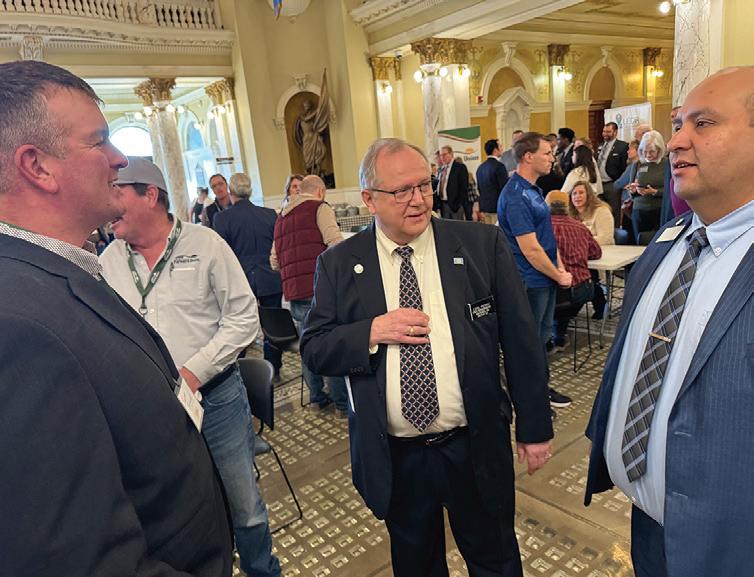
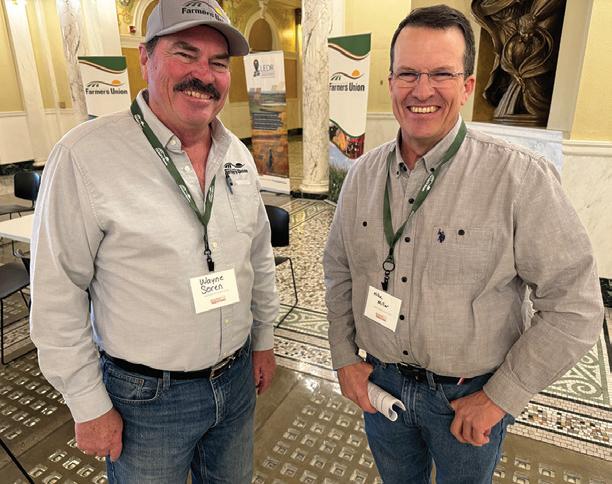


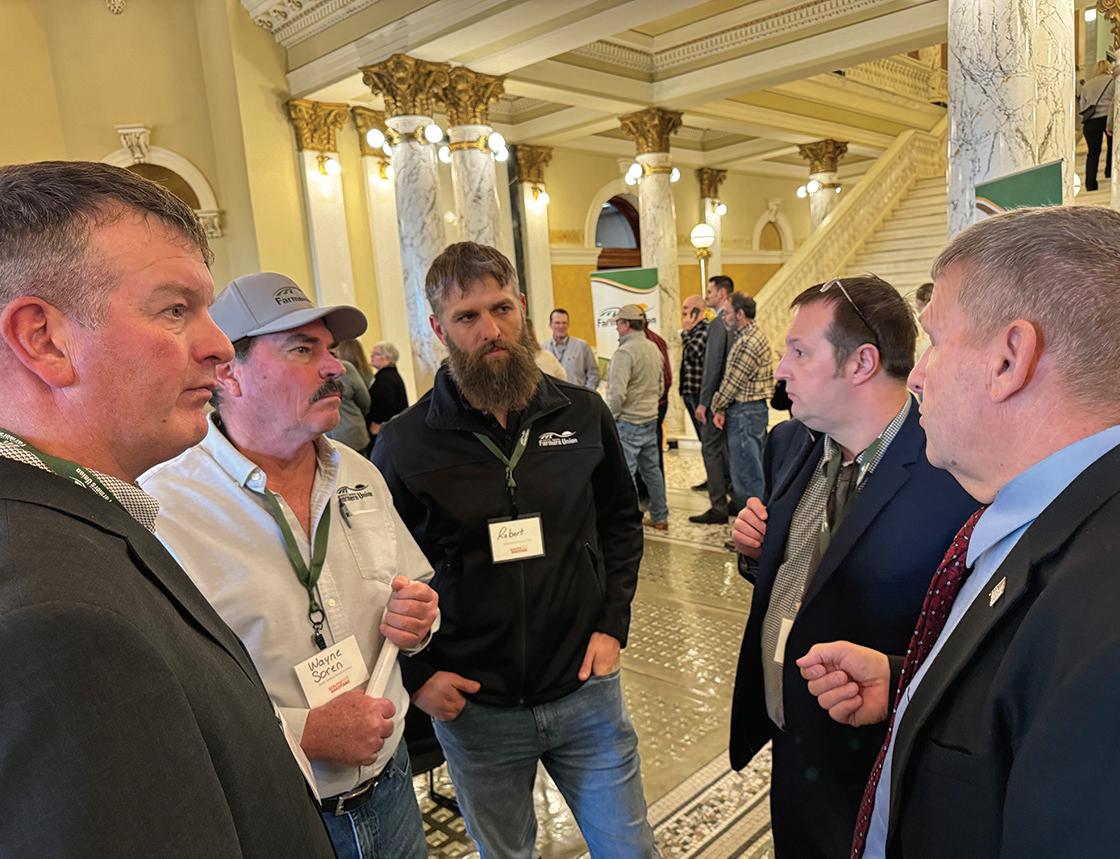





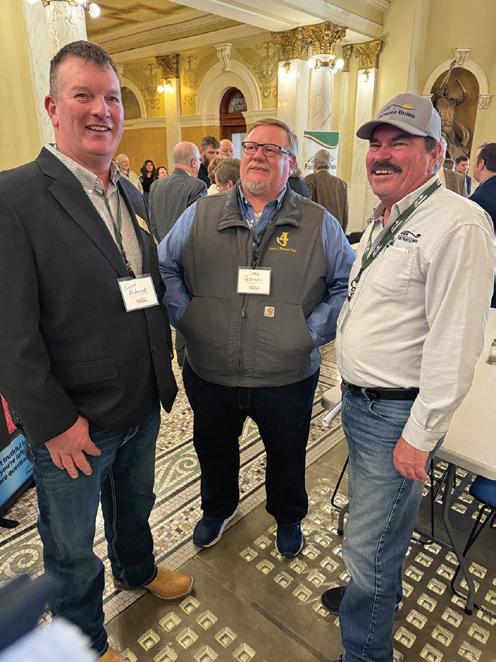
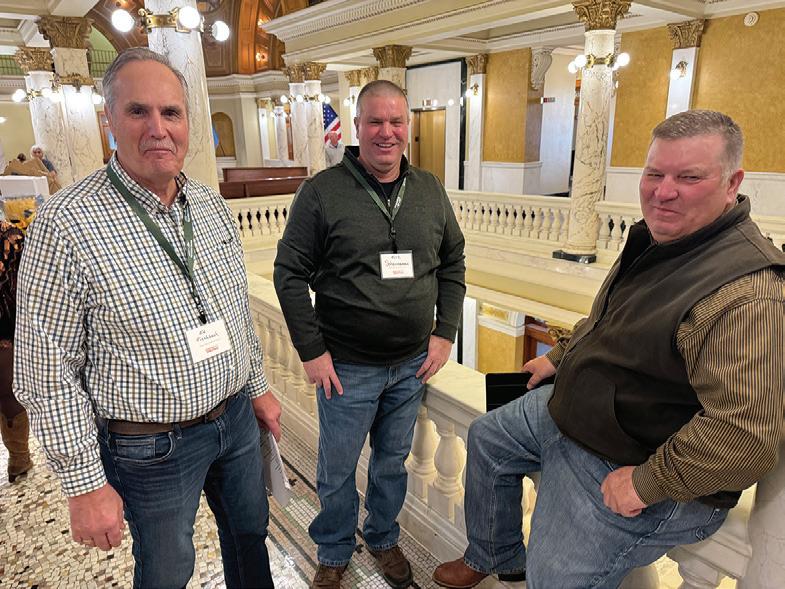


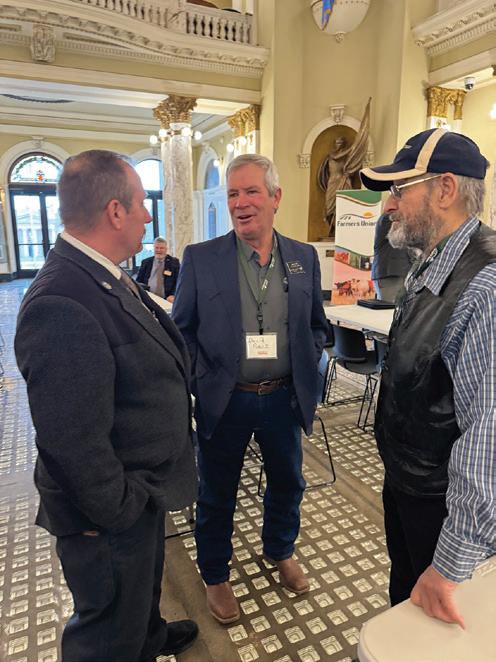
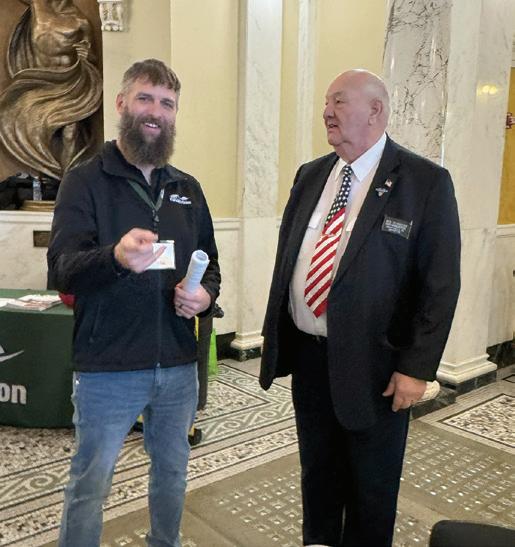
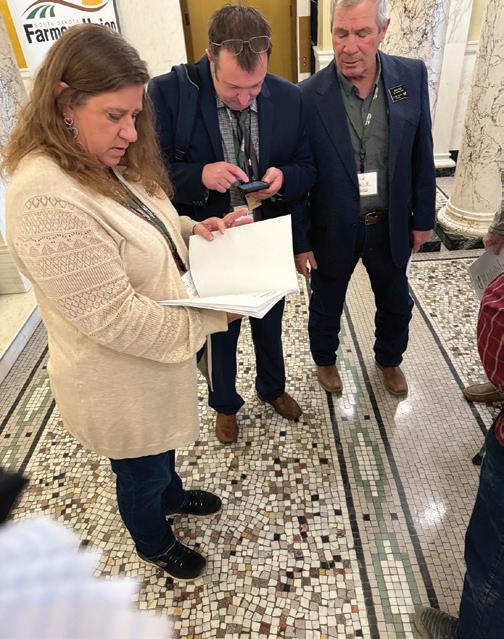
2024 is the first year Egan property owner Clayton Rentschler attended a South Dakota Farmers Union Legislative Day.
Rentschler has farmland in Moody County and he is concerned about his property rights.
“South Dakota Farmers Union are the only ones standing up for landowners who want to keep their property rights. That’s why I’m here today – to show support for property rights,” explained Rentschler, who joined the state’s largest agriculture organization because of their support for this issue.
Showing up in Pierre to highlight issues important to family farmers and ranchers is the purpose of Farmers Union annual Legislative Day. This year the event was held Feb. 13. And like Rentschler, most members attending were concerned about property rights.
“This is about more than a pipeline, producers are concerned about their property rights because this is a case of eminent domain being used for private gain,” said Karla Hofhenke, Executive Director for South Dakota Farmers Union. “Farmers Union works for family farmers and ranchers. And we are not an insignificant
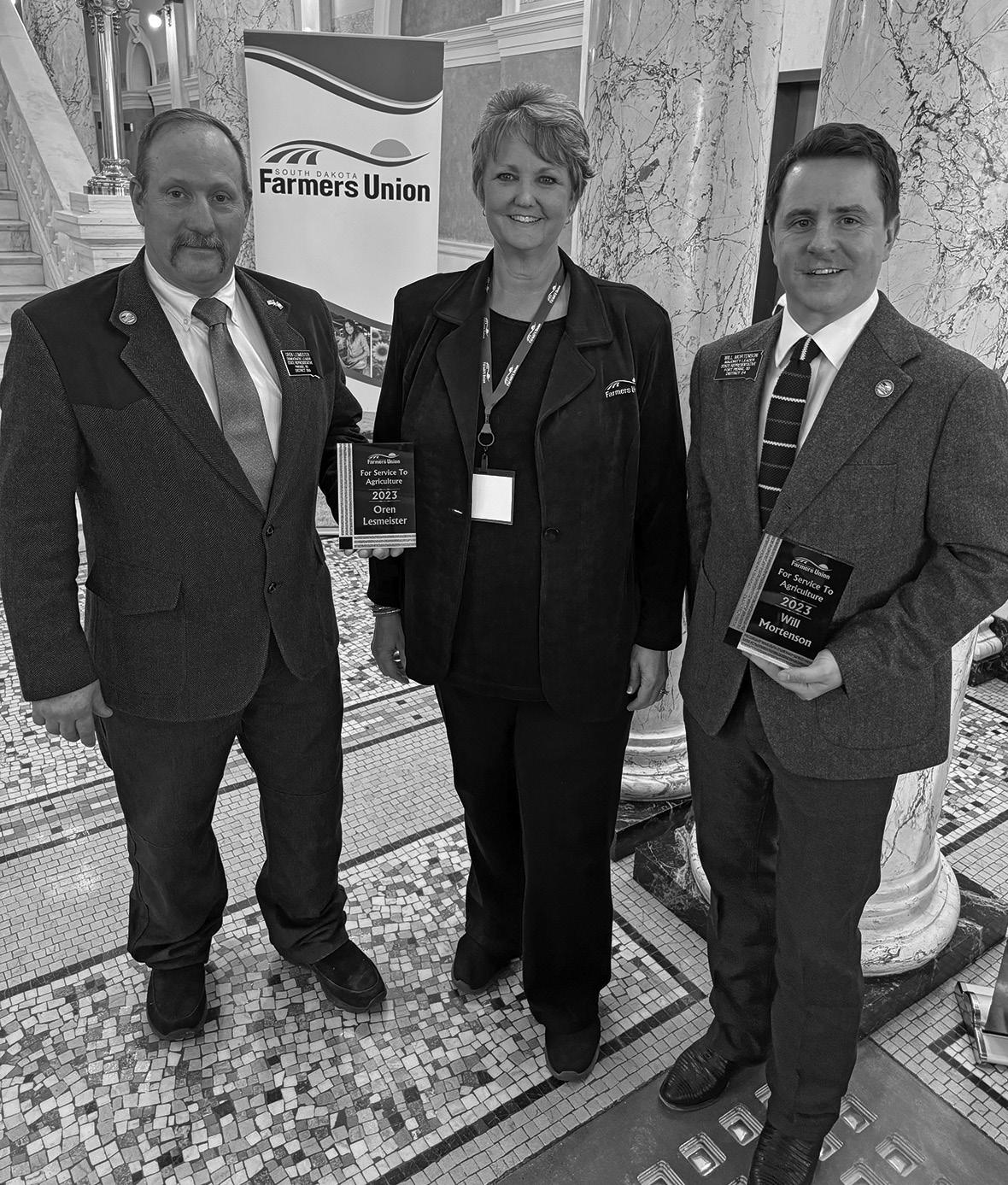
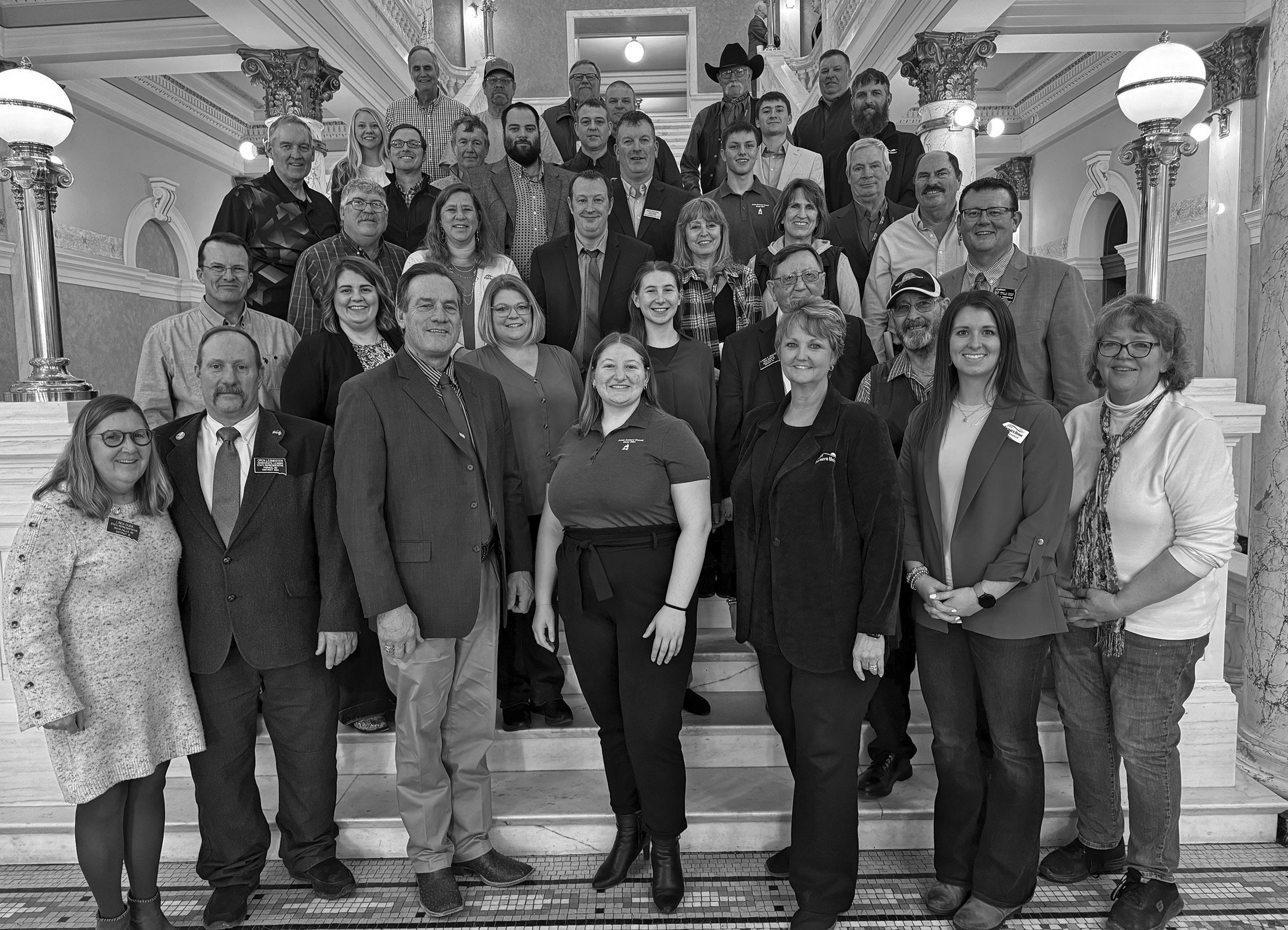
group, we are nearly 19,000 farm and ranch families strong.”
The turnout for the event said South Dakota family farmers and ranchers have much to discuss with legislators.
“There is strength in numbers,” explained Mike Miller, a fifth-generation Freeman farmer. “When agriculture can show a unified front, it is powerful.”
Miller farms with his wife, Michelle Friesen. He makes time for Legislative Day because it provides him with a unique opportunity to sit down and have conversations with the state’s decisionmakers.
“It’s a way for me to stay up to date on current issues and share how these issues impact us on our farm,” Miller said.
Colome farmer Joel Keierleber agreed. “This is a better opportunity than a cracker barrel to talk about what matters to us as farmers because we are here together. I visited with legislators about property rights because landowner rights go beyond the pipeline. I’m not impacted by the pipeline, but I attended Legislative Day because if we don’t stand up for property rights, we will lose them. Right now, the county over
is facing a different property rights issue –where an entity other than the landowner is wanting to decide how private land should be used.”
Hearing from citizens is essential, said Minority Leader and Parade rancher Oren Lesmeister. “Face-to-face conversations are best. When rural South Dakota shows up to protect agriculture from bills that could have even unintended consequences, it shows they care and they are passionate about the issues. This does have an impact.”
To help facilitate conversations between agriculture producers and legislators, Farmers Union sponsored a meal in the Capitol Rotunda.
“Sitting down to share a meal with someone provides a less intimidating opportunity to discuss thoughts on issues that impact us on our farms or ranches,” Hofhenke said.
In keeping with the theme of Farmers Union Legislative Day, the hearty, homecooked meal was catered by Polo farmer Cheryl Schaefers.
During the meal, Larry Zikmund, District
Legislative Day Continued on Page 19


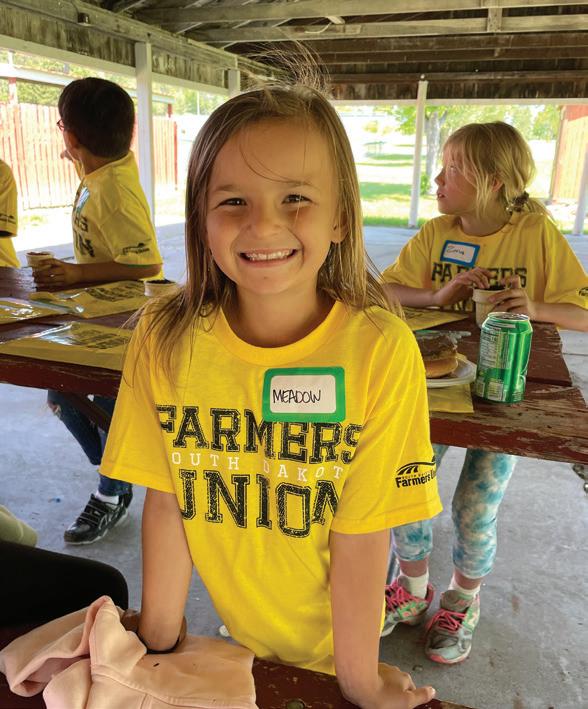


May 15
May 16
May 22 .......................................
May 23
May 24
May 28
May 29
May 30
May 31
May 31
June 3
June 4
June 5
June 6
June 6
June 7
June 9-14
June 17
June 18
June 19
June 20
June 21
June 25
June 26
June 27
June 28
July 1
July 1..........................................
July 2
July 8
July 9
July 10
July 11
July 17
July 18
July 21-24
July 30

July 31
August 1
Haakon/Jackson County
Faulk County
Hanson County
Clark County
Meade/Pennington County
Deuel County
Edmunds County
Day County
State Sr. Camp Registration Deadline
Lyman County
Hutchinson County
Charles Mix County
Hand County
Gregory County
Tripp County
Yankton County
State Camp
Perkins County
Corson County
Campbell/Potter/Walworth County
Kingsbury County
Clay/Lincoln County
Beadle County
Minnehaha County
Harding County
Dewey/Ziebach County
Marshall County
Jr State Camp Registration Deadline
Roberts County
Spink County
Brule County
Hughes/Sully/Stanley County
Brown County
McCook County
Davison County
Jr State Camp
Turner County
Brookings County
Jerauld/Buffalo County

Legislative Day
Continued from Page 17
14 State Senator from Sioux Falls, sat with De Smet farmer Rob Lee. Although the men are a generation apart in age, Zikmund and Lee immediately found common ground – they are both veterans. Lee served in the Army National Guard and Zikmund served in the Air Force.
Zikmund said he appreciated the opportunity this Legislative Day provided to him as a policymaker to connect with a farmer.
“I am a strong believer in making sure I have input from people before making decisions – the more people I get input from, the better,” said Zikmund, who grew up on farm but spent much of his career in education, as a teacher and school administrator.
Legislative Day 2024 also provided attendees with an opportunity to see firsthand how policy is made. Attendees sat in on a committee hearing in the morning and then watched as legislators discussed bills during the afternoon’s House Session.

“I have been following one of the bills they were talking about,” said Chaz Blotsky, 19, an agriculture business major at Mitchell Technical College. “Because the topic hit close to home, it made the process more real.”
Blotsky was actively involved in South Dakota Farmers Union educational programming throughout high school and he was one of four youth members to attend the event. Other youth who attended are: Madisyn Raymond, Ethan; Aeriel Eitreim, Sioux Falls; Sean Thompson, Pierre.
Connecting rural youth with the legislative process is among the goals of the day, said Samantha Olson, South Dakota Farmers Union Education Program Specialist. “These youth are leaders. It is important for them to understand the process because as leaders, they could be our state’s next generation of legislators. And it is important for them to see this side of the process – as a citizen who elects the legislators.”
Legislative Day is one of many opportunities South Dakota Farmers Union
provides to rural youth, family farmers and ranchers.
“As a Farmers Union member, I feel like my voice is heard,” said Ipswich crop and cattle farmer Sarah Perrion. “Today, in Pierre I have talked to legislators about protecting our property rights because if laws are not put in place to protect us today, what is to stop another private interest, like a solar farm from taking land away from farmers or even small, rural communities, like Ipswich?”
Through their involvement in South Dakota Farmers Union, Perrion and her husband, Lance, have gained advocacy training and experience. Each year the organization brings a group of South Dakota producers to Washington, D.C. The National Farmers Union Fly-In provides another chance for producers to discuss issues that are important to their farms and ranches with policymakers. To learn more, visit www. sdfu.org. n By Lura Roti for SDFU
“These youth are leaders. It is important for them to understand the process because as leaders, they could be our state’s next generation of legislators. And it is important for them to see this side of the process – as a citizen who elects the legislators.”
– Samantha Olson, SDFU Education Program Specialist
SDFU lobbyist Mitch Richter represented Farmers Union policy in Pierre each day of Legislative Session 2024.

Legislative Session 2024 wrapped up with South Dakota property owners having a few more rights than when it began, but not near the rights South Dakota Farmers Union was hoping to help secure for them in support of SDFU policy.
And all bills that would have given more property rights oversight to local counties and townships did not pass.
In the meantime, bills that give the Public Utilities Commission more oversight of property rights did pass. Among them is Senate Bill 201.
Senate Bill 201 gives the Public Utilities Commission final authority on eminent domain. It also provides landowners with some protections not previously offered in South Dakota:

According to SB 201, any landowner granting a carbon pipeline easement has the following rights:
1. Each pipeline placed in a carbon pipeline easement must meet the minimum depth
2. The entity holding rights in the carbon pipeline easement must repair any damage to drain tile
3. An operator of a pipeline facility carrying carbon dioxide is liable to a landowner for any leaks or repairs
4. An operator of a pipeline facility carrying carbon dioxide must indemnify (hold harmless) the owner
5. Any applicant desiring to obtain a permit to operate a pipeline facility carrying carbon dioxide must file the plan
6. Any applicant desiring to obtain a permit to operate a pipeline facility carrying carbon dioxide must file a disclosure of the dispersion analysis
7. Any applicant desiring to obtain a permit to operate a carbon dioxide pipeline facility must engage a landowner
8. Each carbon pipeline easement agreement must include a statement disclosing the information in HB 1186
9. If the easement holder mortgages or otherwise encumbers to any party any part of the easement holder’s rights and interests under the carbon pipeline easement, the mortgage or encumbrance is enforceable only as permitted in HB 1186
10. A carbon pipeline easement is not enforceable after the period of time set forth in HB 1186
11. An operator of a pipeline facility holding the right in the carbon pipeline easement must initiate business operations within the time period set forth in HB 1186
12. A carbon pipeline easement expires after the passing of a period of nonuse as set forth in HB 1186
13. A carbon pipeline easement must be in writing as required by HB 1186
14. A landowner granting a carbon pipeline easement has the examination and survey protection rights
15. To receive the one-time payment as provided in HB 1185
To fully understand these rights, it is important to read House Bill 1185 and House Bill 1186. To make this as easy as possible, pull out your smartphone, open the camera app and scan the QR codes below. Each QR code will direct you to the complete bill. Readers can also visit sdlegislature.gov, click on the 2024 Bills button and search each bill number.





Advocating for property rights and educating the public on eminent domain laws was the theme of a panel discussion held by the South Dakota Farmers Union during the Watertown Winter Farm Show on Feb. 7.
“This affects every South Dakotan that has property, and when I mean property, I’m even talking about your own automobile,” said Doug Sombke, Conde farmer and South Dakota Farmers Union president. “They could use eminent domain to take anything away from you according to the laws in South Dakota today.”
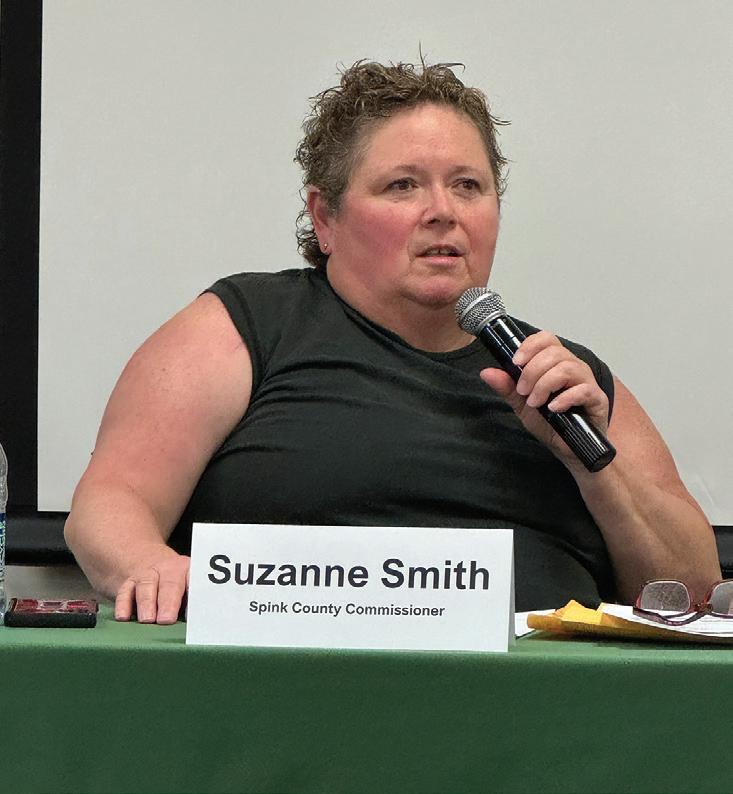
“We didn’t put an ordinance in to keep something out, we put an ordinance in to protect the citizens of the county.”
– Suzanne Smith, Spink County Commissioner
Sombke spoke on the panel along with Spink County Commissioner Suzanne Smith and Brown County farmer Craig Schaunaman.
While South Dakota Farmers Union originally wanted to stay neutral on the carbon pipeline discussion, a number of their members received eminent domain requests, and the organization felt it was time to advocate for their members and the state.
“I want everyone to know that I, personally, and the South Dakota Farmers Union are not against ethanol,” said Sombke. “What we found out as we started doing this is that eminent domain laws are pretty much wild, wild west here in South Dakota. Anyone can use it, not
just the utilities, but also people that are looking for something for private gain.”
Sombke pointed out that the goal isn’t to get rid of eminent domain, but instead to reestablish it.

“I often say it’s not what landowner rights we have in South Dakota, but the lack of landowner rights we have. We really, truly do not have a lot of landowner rights in South Dakota.”
– Craig Schaunaman, Brown County farmer
“We’d like to see two different levels of eminent domain, one for the public use, and then also one for private gain, and then what they have to do to get that eminent domain,” Sombke said.
As a county commissioner, Smith helped write an ordinance in Spink County that denied permits to the carbon pipeline companies.
Smith said that the passing of the ordinance was an effort of commissioners standing together while the pipeline companies aimed to divide them.
“It was a matter of trying to divide us by pulling a couple of us off to a private meeting, to talk to them and get them on their side. It was just mainly trying to divide our
Farm
Continued on Page 22
Continued on Page 21
commissioners, and we weren’t going to do it. I mean, if you can’t bring something to the public at our meeting, we’re not going to go visit with you in a dark room. It just doesn’t happen that way,” Smith said. “We want to be visible, we invite anybody to come to our commissioners meetings, voice your opinion. That’s what we’re there for, is to listen. We didn’t put an ordinance in to keep something out, we put an ordinance in to protect the citizens of the county.”
Smith hopes that the eminent domain laws in the state will be revisited in an effort to stop situations like this from happening.
According to Schaunaman, a bill passed through the Legislature allowing common carriers, meaning pipelines, to use eminent domain in 2016, which is how Summit Carbon Solutions and Navigator CO2 obtained initial permits.
“I often say it’s not what landowner rights we have in South Dakota, but the lack of landowner rights we have,” Schaunaman said. “We really, truly do not have a lot of landowner rights in South Dakota.”
Schaunaman brings first-hand experience to the conversation as he and his brother were a part of the 160 landowners with condemnation lawsuits against them by Summit Carbon Solutions in 2023.
Since then, Schaunaman and his family have tried to bring awareness and education to the situation.
“No matter what your position is, always take time to educate yourself. Be patient if they do approach you with an easement, whether it’s a pipeline, wind or solar easement, and reach out to

people,” Schaunaman said. “There’s a lot of valuable resources out there within communities and a lot of lawyers have become very in tune with wind easements, solar easements and pipeline easements.”
South Dakotans First is one group committed to providing education and resources to the public. According to their website, South Dakotans First is a statewide grassroots coalition dedicated to safeguarding and upholding the property rights of individuals against the encroachment and profit-seeking actions of out-of-state corporations.
“I want everyone to know that I, personally, and the South Dakota Farmers Union are not against ethanol. What we found out as we started doing this is that eminent domain laws are pretty much wild, wild west here in South Dakota. Anyone can use it, not just the utilities, but also people that are looking for something for private gain.”
– Doug Sombke
The group conducted a survey in September 2023 and results showed over 80 percent of South Dakota voters oppose eminent domain for private use and 66 percent strongly oppose it.
Even with the large majority of voters opposing eminent domain for private use, concerns regarding the state Legislature were voiced during the panel discussion.
“I think they’re working the edges of what needs to be done. They’re addressing some of the survey issues that are out there. I really don’t believe the Legislature has the appetite to get to the root of the problem,” Schaunaman said. “I think the important thing is to be able to educate the general public in the eminent domain and condemnation process.”
While there have been some bills regarding eminent domain and property rights introduced and debated this legislative session, the group advocates for the defeat of Senate Bill 201 which will provide new statutory requirements for regulating linear transmission facilities and to declare an emergency.
South Dakotans First says that this bill will strip local control of the situation and hand over control to outside interests. The bill was introduced Jan. 31 and is currently making its way through committee hearings.
Although eminent domain and the carbon pipeline debate has been an issue mainly involving those in agriculture, Sombke says it’s only a matter of time before it affects others.
“I really hope people can start taking this to heart and even if you think this doesn’t affect you, at some point or time in your life, it probably will. As right now, it just happens to be affecting a number of family farmers and ranchers in small communities.” n
One of the things that has bugged me as we work our way through ethanol issues is when things are mis-characterized. Take for example the reference to the RFS as an “ethanol mandate.” Ethanol is in no way mandated under the RFS – the refiners choose ethanol as a way to meet their obligation, they could have used renewable diesel, biogas, even renewable methanol or purchased RINS. The fact that ethanol is the overwhelming choice doesn’t equate to it being mandated. The media has relentlessly mis-stated this and always in a negative light
The current example of mis-speak is that E15 is “banned” during summer months and that the request by eight governors to EPA is to “allow” the sale of E15. Both of these assumptions are incorrect. E15 is not and was never banned. Other than California, it is allowed to be sold anytime, anywhere – provided it meets the same vapor pressure limits of gasoline. E10, on the other hand, is provided a 1-pound waiver from that limit.
By now we all know the lunacy of this –E15 has the same or lower RVP as E10 and there is no rational reason to interpret the law the way EPA, refiners and the courts have done. For 10 percent ethanol blends to get the 1-pound waiver and assume it only applies to 10 percent is absurd. In fact, the authorizing language for the RVP waiver is for gasoline containing 10 percent ethanol. Well, E15 contains 10 percent ethanol. What’s more frustrating is that in a quirk of chemistry, the increase in vapor pressure peaks at just under 10% and then begins to go down as more ethanol is added. At 30 percent, there is no vapor pressure increase at all!
So the “ban” was solely due to this nuance of saying 10 percent rather than “any blend of ethanol,” or “10 percent or more.” A lot of folks ask where the 10 percent num-
ber came from to begin with. Having been around during those early days, I know that the federal tax exemption specified eligibility as being for 10 percent blends so that is one reason. Furthermore, we produced so little ethanol in terms of volume no one envisioned having enough to think about volumes beyond 10 percent.
But back to the “ban.” Under existing regulations, if the summer vapor pressure limit in any given area was, for example, 8 pounds per square inch (psi), E10 would be allowed at 9 psi. E15 could be used but only of it if it met the 8-pound standard, again illustrating that there was no ban. The problem, of course, is that refiners would have to provide a specialized sub-RVP gasoline so after the ethanol is added it did not exceed limits.
That is totally impractical for a refiner and the result is that retailers selling E15 have to stop selling in the summer months.
Frustrated after more than a decade of arguing this issue, the eight Midwest governors said fine, if you are not going to extend the waiver then we reject it; all gasoline sold in our states must meet the same standard. Since refiners have set up their process to put out a sub-octane fuel and rely on ethanol to bring it up to specification (i.e. 87 octane minimum), this will force them to also make the base gasoline low enough in vapor pressure that adding ethanol – any ethanol, be it 10 or 15 percent, meets the same final spec.
To clarify, what the governors did was request EPA to drop the 1-pound waiver, not to “allow” the sale of E15. The result, of course, is if the proper base gasoline is provided then there would be no limit to the sale of E15. This is not splitting hairs. It is an important nuance because if an ethanol blend can be sold as long as it does not exceed RVP limits it should apply to any blend.

Ethanol is an additive to gasoline. It is an approved additive in EPA certification fuel, which as the term implies, is used to certify emissions and efficiency. The late C. Boyden Gray, unquestionably one of the great legal minds in the fields of fuels and emissions, argued that once ethanol became an approved additive for the purpose of certification there is no restriction on how much ethanol can be blended with gasoline. In fact, he argued the burden of proof would be on EPA to demonstrate – after extensive testing – that there were any negative emissions associated with such blends.
What all this means for ethanol is that retailers should feel free to blend any volume of ethanol they choose. Under the governors’ request, all gasoline with ethanol would have to meet whatever the standard is for non-blended gasoline. While auto and government testing validates E30 as the optimum blend level, this is important because an orderly transition to a nationwide E30 fuel cannot happen overnight and mid-level blends such as an E20 or E25 might wind up being used as a stairstep to E30.
But we can use E30 now. Adding 20 percent ethanol to today’s E10 would not result in any vapor pressure increase and produce a 98+ RON premium gasoline that would be significantly less expensive than current premium.
A nationwide transition to E30 would provide incredible benefits in oil savings, health and climate benefits and energy security.
The bottom line is that for the U.S., with the largest gasoline market in the world, to allow itself to be captive to a 90 percent gasoline market is asinine. As we have pointed out many times, countries around the globe are using 20-30 percent blends and providing their citizens numerous benefits. We should be doing the same. n

The big event on the Farmers Union calendar in March was NFU’s annual convention. Nearly 500 Farmers Union delegates, members and guests from across the country gathered in sunny Scottsdale, Arizona, to set NFU’s policy priorities for the year and hear from agricultural experts and political leaders on various issues facing American family farm agriculture.
Inside the beltway, the lengthy annual appropriations process for fiscal year 2024 (FY24) has finally ended. Congress reached a major breakthrough in early March and has passed all 12 appropriations bills to fund the government through September. Right to Repair has also been gaining new momentum, and Farmers Union members stepped up to make their voices heard.
From March 10-12, NFU hosted the 122nd Anniversary Convention. This year’s programming focused on the importance of democratic institutions, both within Farmers Union and throughout the nation. In an era where public trust in institutions is waning, it is crucial for Farmers Union to reinforce our governance principles and the thoughtful processes that guide our grassroots advocacy.
Featured speakers included U.S. Secretary of Agriculture Tom Vilsack; Sarah Suggs, President and CEO of the Sandra Day O’Connor Institute for American Democracy; and Kari Jo Lawrence, CEO of the Intertribal Agriculture Council. Convention attendees also heard from a panel on the future of farmer-owned cooperatives, featuring Chuck Conner, President and CEO of the National Council of Farmer Cooperatives; Keri Jacobs, Associate Professor of Agricultural and Applied Economics and Partridge Chair in Cooperative Leadership at the University of Missouri; and Doug O’Brien, President and CEO of NCBA CLUSA.
In his remarks, Vilsack also announced finalization of USDA’s “Product of USA” labeling rule, which requires meat, poultry or egg products bearing the voluntary ‘Product of USA’ or ‘Made in the USA’ label be exclusively derived from animals born, raised, slaughtered and processed in the United States. Vilsack announced the proposed rule at NFU’s convention last year in San Francisco.
President Joe Biden provided pre-recorded remarks on promoting competition in agricultural markets and the need for Fairness for Farmers, as did U.S. Assistant Attorney General Jonathan Kanter and Federal Trade Commission (FTC) Chair Lina Khan on the Biden administration’s efforts to promote competition and ramp up antitrust enforcement.
Following a series of breakout sessions covering topics on right to farm laws, managing farm stress, food safety, the future of sustainable aviation fuel and protecting landowner rights, Farmers Union delegates re-elected NFU President Rob Larew and Vice President Jeff Kippley, to their third and second terms, respectively. Their terms will run through 2026.
The main event of convention is the consideration of NFU’s policy book and special orders of business. Delegates debated and adopted the 2024 NFU policy book and approved six special orders of business, including on Fairness for Farmers, the 2024 Farm Bill, the farm safety net, conservation, dairy policy reform and support for cooperatives and the international year of cooperation.
The special orders and the full 2024 policy book can be
found at www.nfu.org/policy
Earlier this month, USDA issued its second final rule in a series of updates to the Packers & Stockyards Act (P&S Act). The “Inclusive Competition and Market Integrity” rule establishes clearer standards for prohibited practices under the P&S Act, including discrimination, retaliation and deception by packers, contractors and dealers. The final rule will take effect on May 6.
In addition to providing anti-discrimination protections for legally protected classes, the rule bolsters protections for livestock producers and poultry growers who engage in legally protected activities, such as lawful communications or refusals to communicate, asserting contractual and P&S Act rights, and participation in associations and cooperatives. It also supports USDA monitoring, evaluation and enforcement of compliance with aspects of this rule through certain recordkeeping requirements.
While the rule itself does not definitively solve the vexing “harm to competition” issue that has plagued P&S Act enforcement, it does restate from Biden’s competition executive order, “it is unnecessary under the...Act to demonstrate industry-wide harm to establish a violation of the Act and the ‘unfair, unjustly discriminatory or deceptive’ treatment of one farmer” violates the Act.
The final rule is set to take effect on May 6. The rule’s finalization was announced just days after a successful effort by NFU to defeat a harmful policy rider out of the FY24 agriculture funding bill, which was passed as part of a sixbill spending package – known as a “minibus” – in the first week of March. This policy rider was included in the U.S. House FY24 agriculture funding bill proposal and would have blocked enforcement of the recently completed P&S Act rules, while preventing the finalization of the outstanding rules. Its exclusion from the FY24 minibus is a major win for family farmers and ranchers across the country.
In further defense of the P&S Act, NFU Vice President Jeff Kippley penned an op-ed for the publication Agri-Pulse, highlighting the importance of the P&S Act for family farmers and ranchers:
Given the abundant evidence of price fixing and unfair practices in the livestock industry, it’s clear that maintaining the status quo won’t foster innovation, competition or robust market oversight. It’s time to acknowledge the heavily consolidated and vertically integrated nature of the industry and enact rules that level the playing field for family farmers and ranchers.
At NFU’s 122nd Anniversary Convention, Vilsack indicated farmers should soon expect more proposed rules to be issued which will address the poultry tournament system and further address the “harm to competition” issue, as well as a possible rule addressing price discovery in cattle markets. NFU will continue working to ensure the P&S Act rulemakings can proceed without interference while urging USDA to swiftly complete the remaining rules.
On Feb. 2, NFU submitted comments to the FTC in sup-
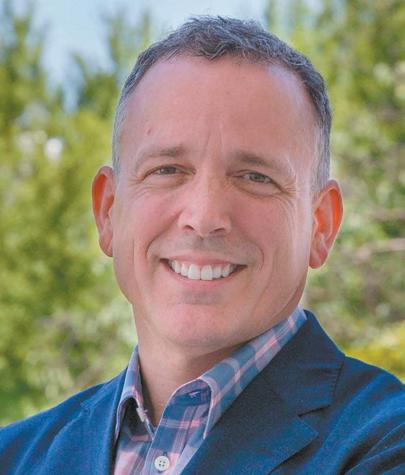 Rob Larew National Farmers Union President
Rob Larew National Farmers Union President
port of the Public Interest Research Group’s (PIRG) and iFixit’s petition to pursue rule making that will protect farmers’ and consumers’ Right to Repair.
PIRG and iFixit submitted this petition in late 2023. The petition (“Petition for Section 5 Rulemaking Addressing Consumers’ Right to Repair”) lays out the case for the rulemaking and the necessary components to adequately address consumer expectations. In support of the petition, NFU’s comments urge FTC to establish rules that are consistent with consumer exceptions of product repair and limit the power of consolidated farm equipment manufacturers.
NFU believes it is essential that such rules address the consumer expectations, including (but not limited to):
• Consumable components be replaceable and readily available throughout a product’s lifespan.
• Components that commonly break be replaceable and readily available as repair parts.
• Consumers be able to take damaged products to a repair shop of their choice or perform a repair themselves.
• When a manufacturer discontinues support for a product, its key functions remain intact, and an independent repair shop be able to continue to perform repairs.
• Identical components from two identical devices be interchangeable without intervention from the manufacturer.
• Independent repair shops be not required to report customers’ personally identifiable information to the manufacturer.
Furthermore, NFU’s comments highlight consolidation in the industry as a concern, with just three manufacturers controlling the majority of farm equipment production, sales and repairs. High levels of concentration among farm equipment manufacturers have contributed to consolidation among farm equipment dealers, further exacerbating the problems farmers face accessing repair. This consolidation also impacts small rural businesses that sell and repair agricultural equipment.
NFU’s comments also cite and reject false and misleading claims by manufacturers and dealers that independent repair undermines emissions compliance laws under the Clean Air Act (CAA). NFU wrote U.S. Environmental Protection Agency (EPA) Administrator Michael Regan last June requesting clarification. In his response to NFU, Regan sharply rebuked these claims and expressed EPA’s support for independent repair.
NFU remains involved in a separate FTC complaint against John Deere for their illegal restrictions in the repair market. NFU has championed federal legislation to ensure farmers and ranchers can fix their own equipment. State and regional Farmers Union divisions are leading the charge across the country. Rocky Mountain Farmers Union secured a major win last April with Colorado becoming the first state to enact agricultural Right to Repair legislation – this law went into effect on Jan. 1, 2024.
A core pillar of the Fairness for Farmers campaign, NFU remains committed to securing the Right to Repair for farmers and ranchers nationwide. n Current as of March 26 2024
As we wrap up the 2024 Legislative Session, I want to thank each of you who made time to show up in Pierre.
Even though we did not get the property rights legislation that we hoped for, you showing up did emphasize the fact that the majority of South Dakotans are concerned about eminent domain being used for private gain.
In the meantime, landowners’ fight for property rights continues outside of the Legislature.
March 19 the State Supreme Court held a hearing to determine whether or not surveyors without permits are allowed to enter private property without permission.
The judge asked tough questions. Most notably, the judge asked to see the contracts between Summit Carbon Solutions and ethanol plants. These contracts have been top secret –no one, not even legislators introducing bills during 2024 Legislative Session – have been granted access to these contracts.
If the contracts show the CO2 produced by ethanol plants is owned by Summit Carbon Solutions instead of the ethanol plants, CO2 would no longer be seen as a common carrier.
The best economic development is in education for a good sound workforce for all industries including agriculture.
– Doug SombkeMarch 29 is Summit Carbon Solutions’ deadline to turn over the contracts. We do not know when the judge will announce his ruling.
As I continue to research this topic, I found a 2006 bill sponsored by Larry Rhoden, that protected municipalities from eminent domain being used for private gain (HB1080). And there is a section in South Dakota Codified Law that addresses utilities crossing property owned by railroads. The law is thorough and gives a number of different variances. Perhaps

lawmakers can use these existing laws as roadmaps to strengthen South Dakotans’ property rights. My thought is, why would railroad property be more important than property belonging to individual South Dakotans or counties or townships.
I share all this to say: there is still hope.
In addition to property rights, as we look ahead to Legislative Session 2025, South Dakota Farmers Union will encourage state policymakers to address the need for additional streams of education funding.
According to South Dakota Department of Education and South Dakota Department of Revenues websites, currently, of the 187 school districts in our state, 117 are operating on an opt-out. This means they are operating above the legal levy by state law because they cannot make their budgets balance. According to my school district’s superintendent, there are several more school district considering taking up opt-outs in their districts. I’d say, if only 70 are able to balance their budgets, we have a problem. And raising property taxes cannot be the only solution available to school districts.
Farmers Union policy supports funding public education in a way that does not put undue strain on family farmers and ranchers.
Based on our state’s budget, there are plenty of funds available to be allocated to education.
For example, our state is currently building a new men’s prison that will cost nearly $1 billion. And our state is paying cash.
If South Dakota can afford to invest in prisons, our state can afford to invest in education.
The best economic development is in education for a good sound workforce for all industries including agriculture.

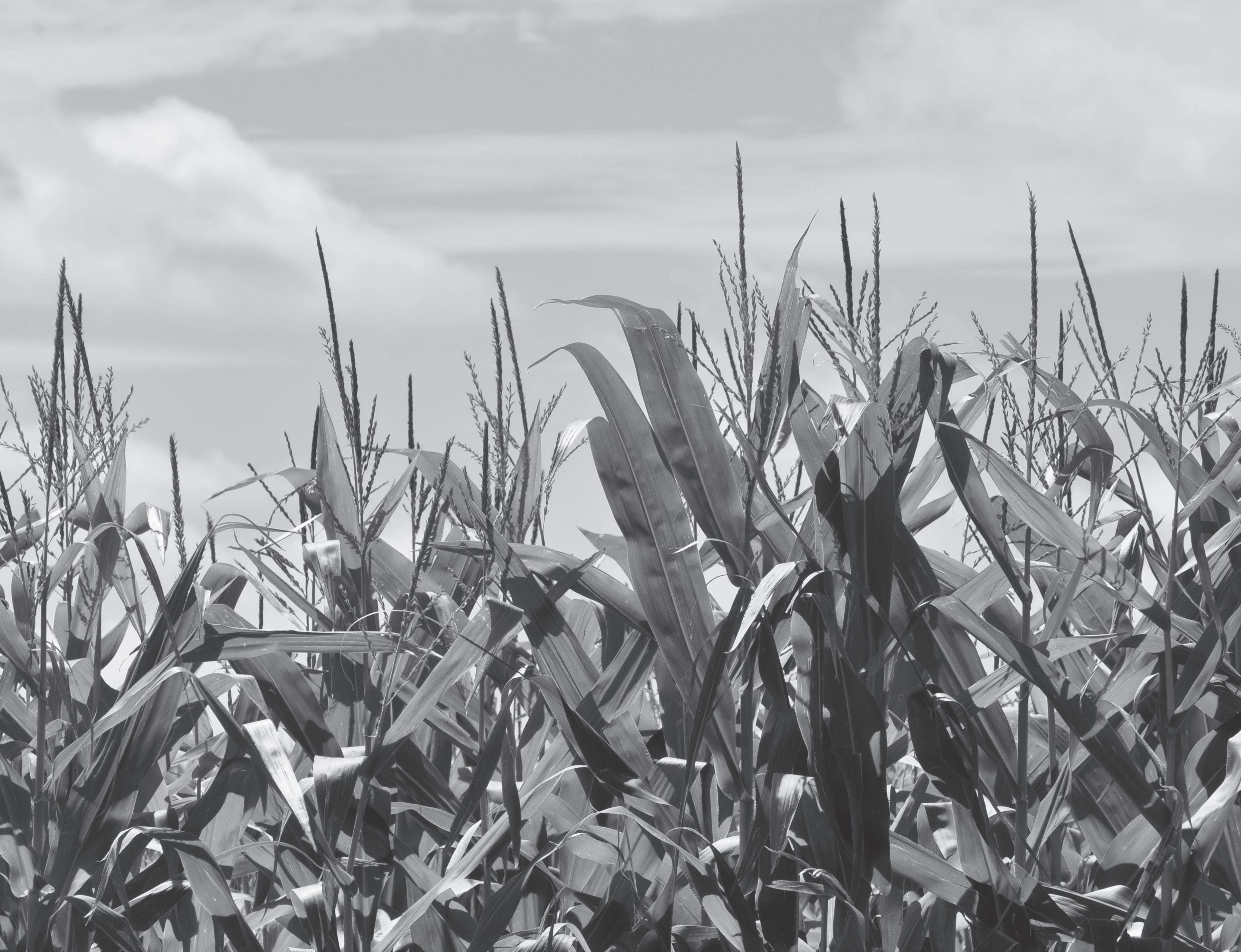

Helping people. Matt Miller said the reason he finds his work as a Farmers Union Insurance agent rewarding is the simple fact that he gets to help people. And by helping them, he gets to build relationships
“I enjoy getting to know the people I serve, and I work to help take care of their insurance needs in the best way that I can,” explained Miller, who took over the Bison Agency from Alan and Karen Voller when they retired in December 2023.
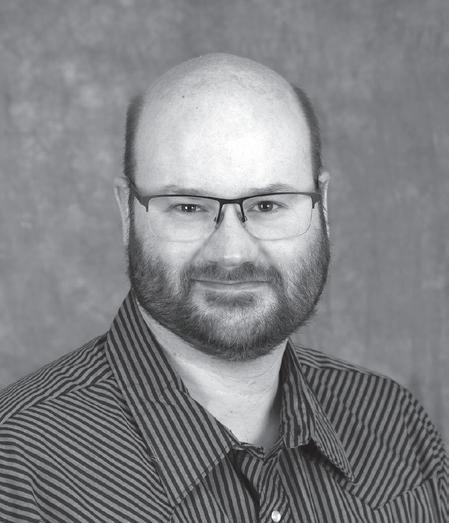
Building relationships through service is a common thread throughout Miller’s career as a retail store manager, deputy sheriff and now insurance agent.
“I know it sounds cliché, but I am in the work I do because it allows me to help people and get to know them,” he said.
He credits caring for animals on his family’s Iowa Century Farm to his desire to help others.
“Growing up on a farm teaches you work ethic and gives you a level of respect for those who depend upon you,” he explained.
Miller spent the bulk of his career working for the Kum and Go Convenience Store corporation.
Working his way up from a high school job stocking shelves and cleaning for his local convenience store in Iowa City, to training managers and finally, in 2008, Miller was asked to manage his own store in Hettinger, North Dakota – just 45 minutes from Bison.
In 2019 he became a deputy sheriff. “I loved the job, but I

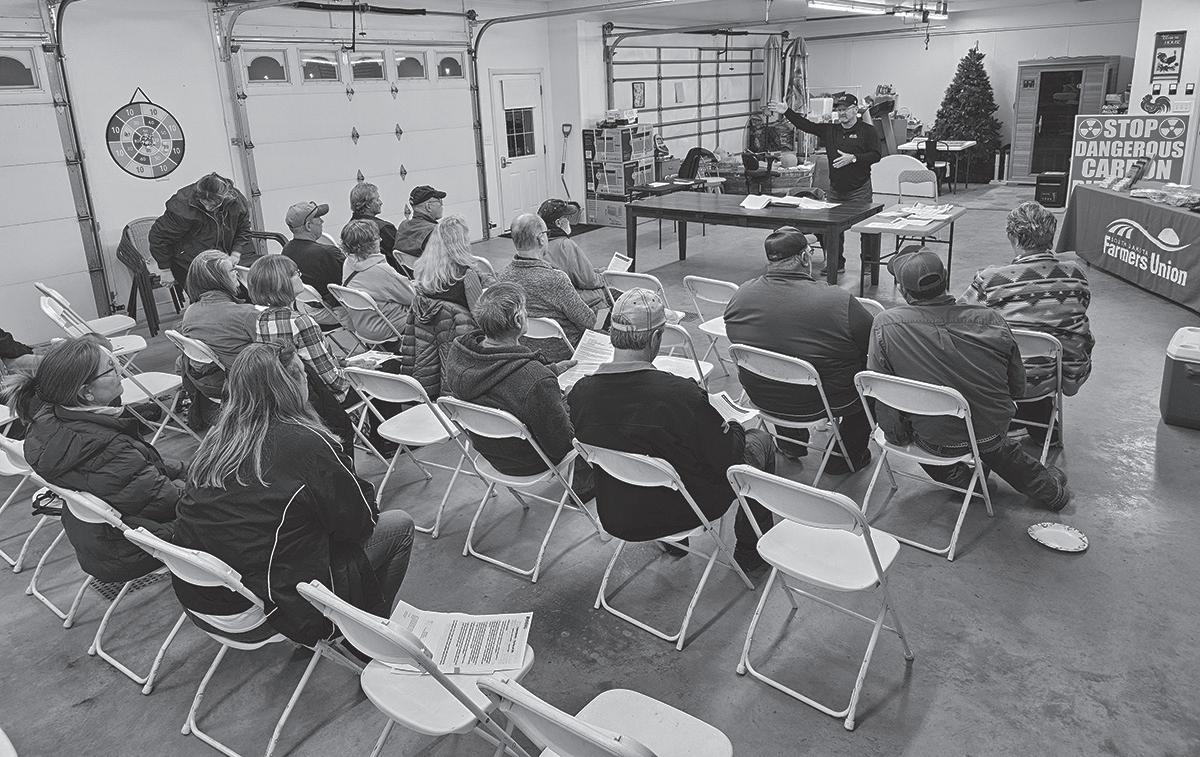
was never home,” Miller said.
And having time for his wife, Christi, and daughter, Zabrina, is a top priority for Miller. The family lives on Christi’s family ranch near Bison. A few months after returning to his role as general manager, Miller read Alan Voller’s Facebook post.

“It took one phone call,” Miller said. “I called Alan, he gave me the rundown and said he would pass my name and information on. Within a week I had an interview.”
Since taking over the agency in December, Miller said he has enjoyed every aspect of the work – but especially getting to know the insurance customers he serves.
“This is the best career move I have ever made.” n
Contact: Matt Miller Cell: 701-928-1437 • Office: 605-244-7431
Matt.miller@fumic.com


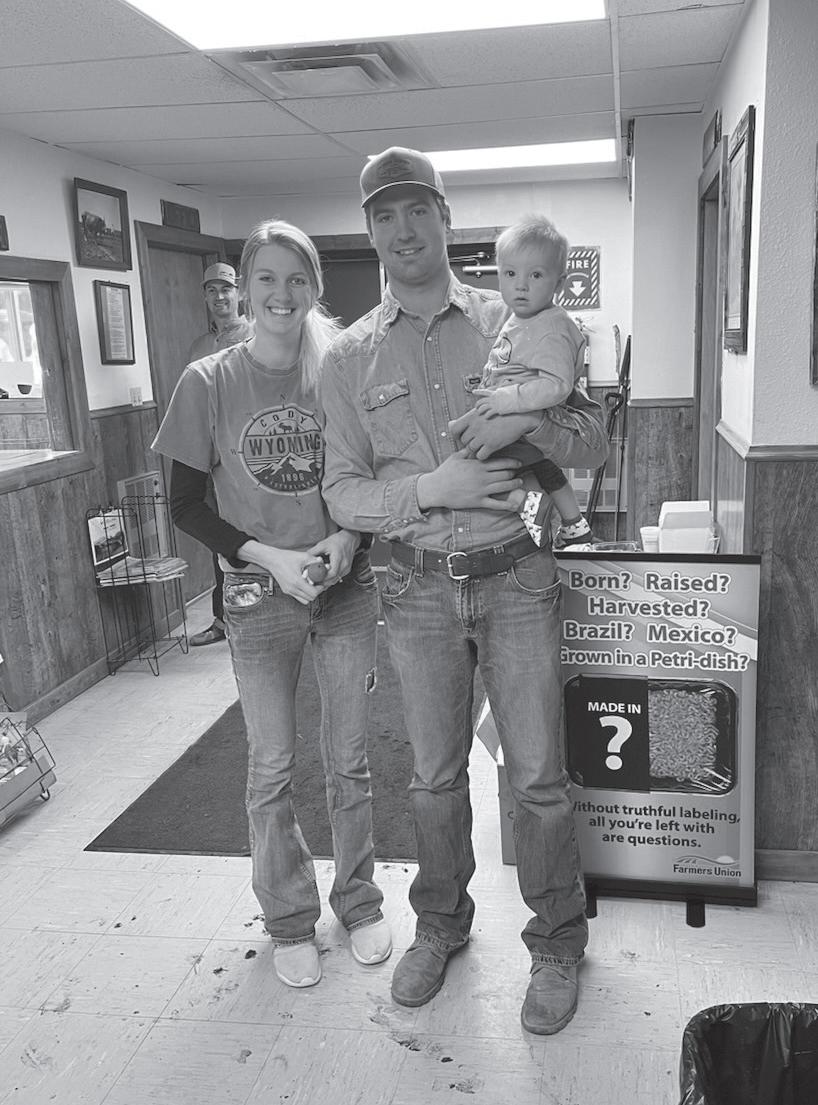
Francis Knippling, age 85, of Wessington Springs, passed away Friday, March 1, 2024, at Weskota Manor in Wessington Springs. A celebration of life was held Wednesday, March 6, at St. Joseph Catholic Church in Wessington Springs. Burial was at St. Placidus Catholic Cemetery, rural Gann Valley.
Grateful for having shared their life with Francis are his children: Brenda (David, Dist. 4 Board member) Reis of Chamberlain, Rocky (Donna) Knippling of Chamberlain, Karla (Doug) Hofhenke (Executive Director of SDFU) of Huron, Roxanne Holm of Ashely, N.D, Barry (Sherri) Knippling of Chamberlain, Shannon (Scott) Dirk of Vale; 25 grandchildren and 34 greatgrandchildren
Francis was preceded in death by his wife of 53 years, Karen Knippling and second wife, Donna Larson Knippling; parents Lambert and Alice Knippling; siblings: Robert (Ethel) Knippling, Helen (Wayne) Peterson, Katherine (Ross) Van Balen, Margaret (Frank) Schnell and Howard Knippling, along with one son-in-law, Barry Holm.
1 lb. hamburger
1 med. onion, chopped
1 can chili beans
Dash of garlic powder
2 T. taco seasoning
SDFU members,
Thank you for the lovely arrangement of flowers honoring our father, thank you to all the members, staff and board that have reached out with kind words, hugs and memorials. Your kindness and friendship are greatly valued by all of us, thank you. – Family of Francis Knippling
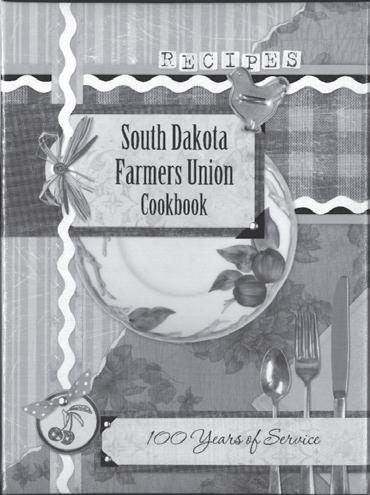
Cookbooks are $10 plus tax and shipping. Call 605-352-6761 or email sdfu@sdfu.org to place
your order today!
8 oz. tomato sauce
6 lg. flour tortillas
1 can ripe olives, sliced
2 c. shredded cheddar cheese
½ c. water
Brown hamburger and onions. Blend beans into paste in your food processor. To the drained meat, add the beans, seasoning and tomato sauce. In a large microwave bowl, put 1 tortilla, spread some bean and meat mixture, some olives and cheese. Repeat layers until gone. Pour ½ cup water down inside the bowl. Microwave 10 minutes, covered. Let stand 10 minutes and serve.

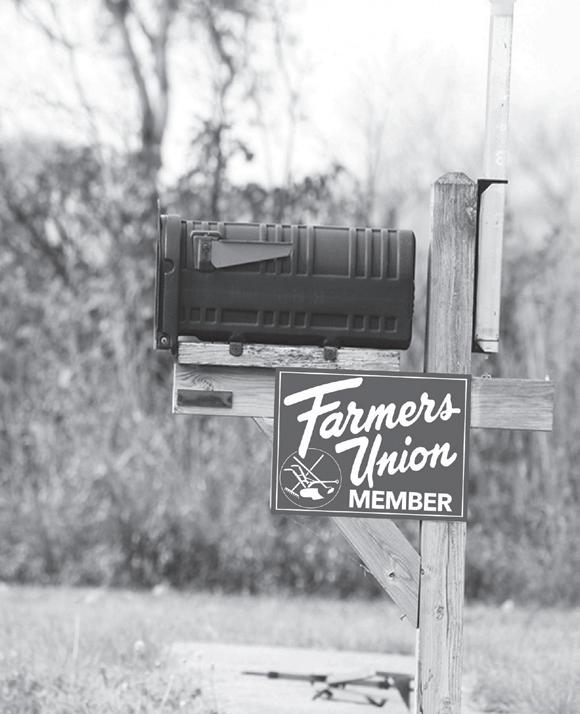
Show your Farmers Union spirit with a special Farmers Union sign. The cost per sign is $10 or free with a fiveyear or greater membership to Farmers Union.
To get yours today, call 605-352-6761 or email sdfu@sdfu.org.